OPINIONS
Columnist Evy Knouse presents a comprehensive guide to what your favorite Glee character says about you.

A11

MAGAZINE
Herrd founders and BC students reflect on the role that the anonymous app plays on campus. A6

Columnist Evy Knouse presents a comprehensive guide to what your favorite Glee character says about you.

A11

Herrd founders and BC students reflect on the role that the anonymous app plays on campus. A6
When Tommy Cross arrived on the Heights for his official visit with Boston College men’s hockey while he was in high school, he showed up with expectations of being overwhelmed with state-of-the-art facilities and high-profile alumni right off the bat.
“When I’d go to visit other schools … the first person they’d introduce you to, sometimes it was a big former player that was in the NHL, or they’d introduce you to the strength coach, or they’d show you the new hot tub, cold tub,” Cross said.
But for Jerry York, none of that mattered.
“On our visit to BC, the first stop after we met Coach York, he took us to meet Father Tony Penna,” Cross said. “It was so important for him to take us there immediately.”
For York, BC ’67, more than locker rooms or fancy equipment,
relationships are what matter most.
“I don’t think it’s buildings. I don’t think it’s campuses. I don’t think it’s where you are,” York said in his 2019 speech following his acceptance to the Hockey Hall of Fame.
“It’s the people that you are involved with that make a place special.”
As the winningest coach in NCAA hockey history, York made an impact at BC from the time he
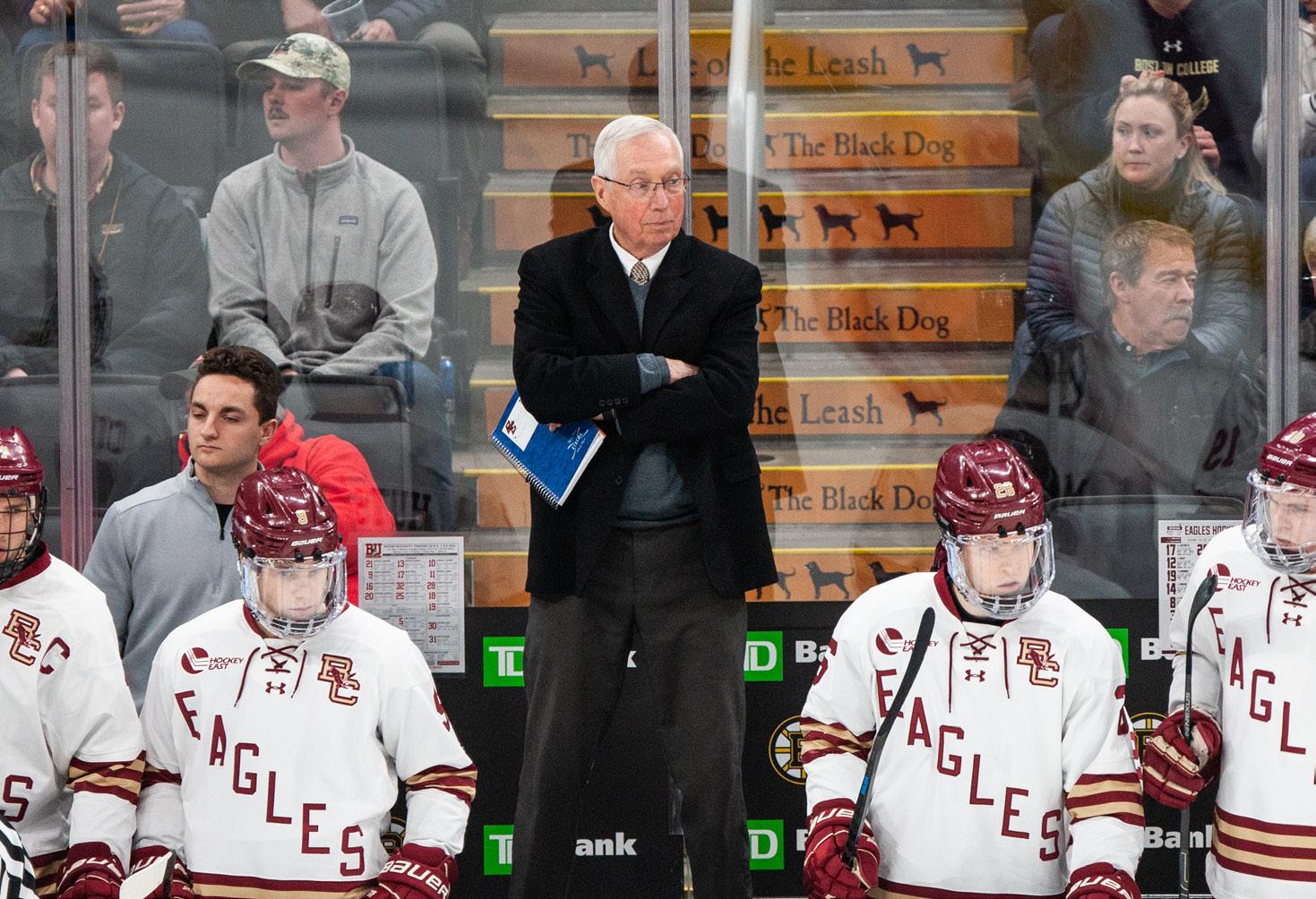
Philip Guarino, a career coach at the Boston College Career Center, picked up his phone on March 1 to answer what he assumed would be a normal call.

“I introduced myself on the phone, expecting it to be a typical call from a college student to the Career Center,” he said. “And then the student asked, ‘Have we met before?’ And I said ‘No, we have not met before.’”
According to Guarino, the student said she received an email inviting her to apply for a job at BC from someone using his name. Later, as the student waited in line to buy four $100 gift cards for the job, she began to ques -
tion its legitimacy, Guarino said. She then decided to call Guarino’s desk phone.
“At that moment … the student who realized that she had been scammed was able to confirm she had been scammed, and I then realized why she was calling,” Guarino said.
This unexpected phone call is just one example of a larger pattern at BC. David Escalante, BC’s director of computer policy and security, said that online scammers have been targeting BC email addresses, promising students jobs that pay upward of $350 per week.
“Many students who fell for this lost hundreds of dollars, and several students lost thousands of dollars,” Escalante said.
arrived as a player in 1963 to his retirement in April after 28 years. While his resume boasts nearly

and colleagues prove that York’s legacy at BC is not just about a filled trophy case, but rather, his impact off the ice.
York returned to the Heights as a head coach in 1994 after a seven-year stint as the head coach at Clarkson from 1972–79 and 15 years at Bowling Green from 1979–
94. He found success at Bowling Green, winning a national championship in 1984, but his return
to BC in 1994 was a homecoming and a chance to coach at his alma mater—something he had always dreamed of.
“In ’94, when Father Monan brought me up to his residence on College Road and sat me down … he says, ‘Jerry, I’d like you to become the next head coach at Boston College,’” York said in his retirement press conference on April 20. “That was probably the most memorable moment—that night. It was something I always aspired to.”
York’s return to BC came amid a tumultuous time for BC men’s hockey. Coaches had been in and out of the program, and the Eagles were on the heels of two losing seasons. BC went 7–12–5 in Hockey East under former head coach Steve Cedorchuk in the 1993–94 season before Mike Milbury replaced Cedorchuk in March 1994. Milbury only lasted three months, abruptly departing in June, and from there, York took over.
York, A13
By Sahithi thuMuLuri Heights StaffThe City of Newton will receive over $2 million after Massachusetts Attorney General Maura Healey and 13 other state attorneys general accepted a settlement offer from

pharmaceutical companies for their role in the opioid crisis, according to Mayor Ruthanne Fuller’s April 7 newsletter.
“I promised the people of Massachusetts that the opioid crisis would be a top priority, that we would hold the bad actors accountable, and
that the billion-dollar companies who got rich off the suffering in our communities would pay,” Healey said at an April 5 press conference. “This is a huge win for people in Massachusetts.”
Watch teams go head-to-head during Mudstock, CAB’s annual mud volleyball tournament, which will take place in the Mod Lot starting at 8 a.m. on Thursday.
Therapy dogs are back! Come to the foyer outside of the Law Library entrance on Monday and Tuesday from 11 a.m. to 1 p.m. for a fun and fluffy study break.
This Wednesday at 4:30 p.m., Emon Nandi from the Center for International Higher Education will give a talk titled “India’s Global Aspirations in Higher Education: Wishful Thinking or an Attainable One?”
Escalante said the University first noticed this particular scam last summer. BC’s Information Technology Services later sent two warning emails to students about the scam, one on Sept. 8 and another on Feb. 4.
According to Escalante, the targeted nature of these emails toward BC students is important to the scam.
“Some of the scams out on the Internet are not targeted -- ‘You won a gift card, click here’ works on anyone,” Escalante said in an email to The Heights “The fact that this scam is targeted is likely part of its relative success.”
The scam typically involves a few consistent steps, Escalante said. First, students receive an email that appears to be sent from a BC faculty member that offers remote, part-time work. Students who reply are then told to submit their resumes.
The scammers next “hire” the student and instruct them to buy gift cards. The students are told to send the gift card information to the scammers, who then become unreachable.
The scammers’ decision to target BC students, Escalante said, is likely related to a variety of factors.
“Possibly because BC is a private school they think BC students might be better off financially, [or] possibly they have some avenue to acquire students’ emails,” he said. “BC’s web site publishes a great deal of information about faculty and (some) staff, which makes it easier for scammers to craft a credible fake ‘From:’ message.”
It is unclear how the scammers are acquiring BC email addresses, and the University has struggled to block
the spam messages, Escalante said, as scammers will typically send 300 to 400 emails before anti-spam A.I. blocks the messages.
The scammer did not immediately request Sora for money. Instead, the scammer asked her a series of questions about her major, school, and class year, which she said heightened her belief this was a legitimate job offer.
The scammer’s increased spelling and grammatical errors, however, began to raise her suspicions, she said.
Deanda-Whaley said. “It gave me kind of a sense of urgency.”
The scammer informed Deanda-Whaley that his last step would be to buy a spreadsheet software he would need for the job. While Deanda-Whaley said he originally expected to just purchase a code for the software, the scammers told him to buy gift cards.
According to Escalante, there are steps students can take to protect themselves from scammers, including not responding to unsolicited job offers and not using their BC email address to sign up for things online.
“Modern spam filtering is done via artificial intelligence, and the filtering isn’t like it was many years ago when you could just say, ‘Block any email with the phrase ‘remote job’ in it,’” he said. “For reasons the anti-spam vendors have not explained, their AI isn’t catching these scams well.”
Escalante said that out of 10,000 undergraduates and 15,000 students, the scam emails will eventually be blocked, with only a few students receiving them.
“But if 1% of the actual recipients it got through to think it’s real and fall for it, that’s 3 or 4 people out of 300 or 400 messages, right?” Escalante said. “So that number’s not good at all.”
Lina Sora, MCAS ’25, said she received one such email describing a remote research assistant position on campus that would pay $350 a week. After emailing back and forth with someone claiming to work in BC’s computer science department, she gave the scammer her phone number.
“I had gotten a couple of them before and I was like, ‘Oh, if I keep getting them, it must be legit,’” Sora said. “So I was like, ‘This seems like a cool opportunity, and I need money, so I might as well.’”
“The spelling errors and grammar and everything was making me realize it was a scam, but then I showed my friends and they were like ‘This happened to another person we know—it’s definitely a scam,’” she said.
According to Sora, the scammer blocked her after she sent a text asking if “this was a scam.”
Like Sora, Joshua Deanda-Whaley, LSEHD ’25, opened his inbox to find an email advertising a research position that paid $350 a week. Deanda-Whaley said the email, which he received around October or November, had BC watermarks.
“At first, I was like, ‘Oh, this is cool. This would be a good opportunity,’” Deanda-Whaley said. “So I thought it was pretty legit at first, and as time went on, I became more suspicious of it—but that [was] when I got to interact more with the scammer.”
While trying to adjust to campus as a new student, Deanda-Whaley said he felt pressure to find a job, especially as a student with a work-study grant and without much knowledge of how it worked.
Deanda-Whaley said the scammer was very persuasive when communicating with him.
“They were like, ‘Get your application with us and then we can review it,’ and it seemed very time sensitive,”
Deanda-Whaley said this was when he first became suspicious, but he still purchased one $50 Apple gift card.
He said he did not turn the card in because the scammer’s behavior grew more alarming.
“They started giving me calls when I was starting to sort of ghost them a little bit. … They’d call me and hang up, and then they’d be like ‘Josh, do you still want this,’” Deanda-Whaley said.
Escalante said the “get me a gift card” scam is not new, but wrapping the scam in the promise of remote work is new since the COVID-19 pandemic.
Students can also use privacy preferences in the Agora Portal to protect other people from seeing their email address.
Guarino said the most disturbing part of the scam is how sophisticatedly it was executed, having clearly been done before.
After he learned that a scammer was using his name to deceive students, Guarino notified the Career Center and the Boston College Police Department (BCPD).
“[BCPD] told me this is not the first time it’s happened at BC, preying on a student who’s really trying to do the right thing—find an internship or a job—and impersonating a person at the University,” he said.
Sora said she was also disturbed by the scam and knowing that someone wanted to take advantage of her.
“I never really had realized that I could fall into [a scam] so easy,” Sora said.
Deanda-Whaley said he felt discouraged after being scammed.
There are three general reasons why students fall for the scam, Escalante said. First, they never saw the warning emails sent to students about the scam. Second, they saw the warning emails, but the scammers were still persuasive. Third, they communicated with the scammers on their phones, which he said can lead to missing indicators that the email is a scam.
“I felt dumb, and telling my friends was a whole other thing,” Deanda-Whaley said. “But it’s kind of like a joke now.”
Though Sora said she believes most students know by now that there is a scam targeting BC email addresses, not enough of them are fully aware of
Read the rest of this story at www.bcheights.com
The UGBC Student Assembly (SA) voted to increase the organization’s budget by $11,861 to a total of $363,450 for the upcoming academic year.
Lubens Benjamin, president-elect and CSOM ’23, and Andy Bonilla, the new director of finance and CSOM ’23, presented the proposed 2022–23 UGBC budget, which the SA later confirmed, at Wednesday’s meeting. The budget will be officially confirmed after Boston College’s Division of Student Affairs approves it.
“All money that’s being moved around in order to put in new places has come from two main sources: the cut to Student Initiatives money, [and] also the 2.7 percent [increase which] accounted for inflation,” Benjamin said.
During the 2021–22 school year, the University granted the Executive Council of UGBC a budget of $41,500, while the budget for next year is $53,250, a 28.31 percent increase.
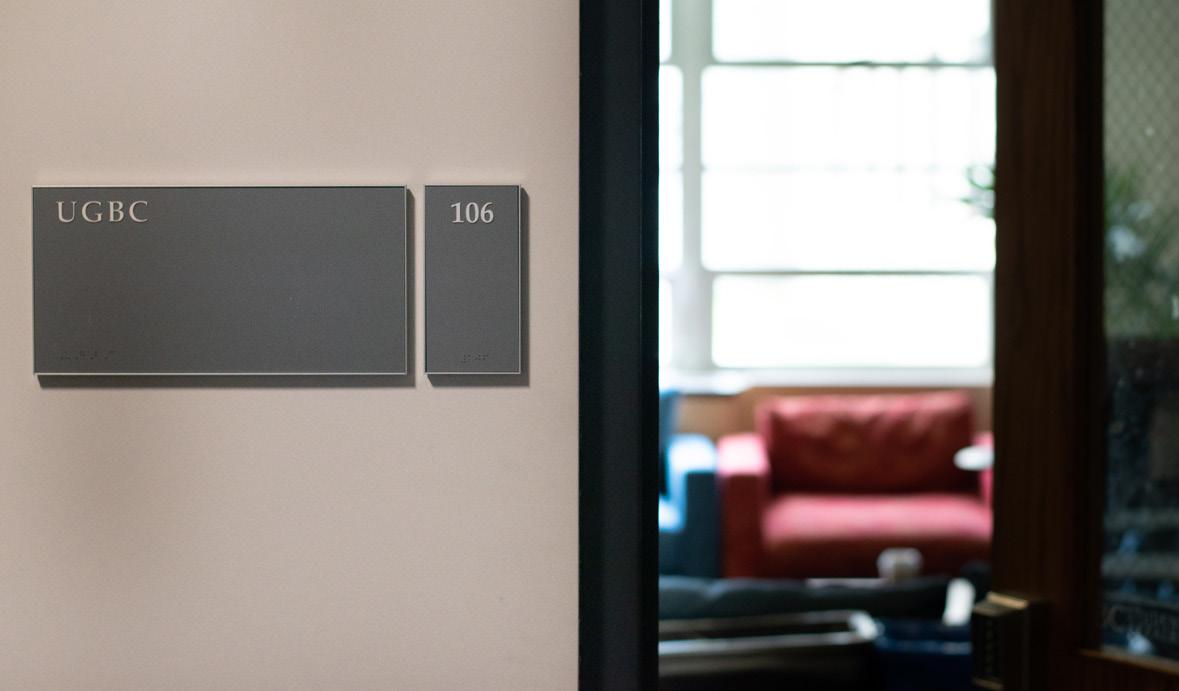
“The increase in the Executive Council [budget] is to account for mainly the retreat that UGBC will have next year for its members and moving it off campus as well,” Benjamin said.
The Executive Council’s budget is comprised of a $23,500 stipend to the OSI graduate assistant, a $4,000 stipend
to the president, a $3,500 stipend to the vice president, a $10,000 stipend to UGBC leadership, and $5,000 to the UGBC retreat.
“When it comes to the executive leadership stipend, the allocations of that 10k will be $900 for the chief of staff, $700 to the finance director, $1,000 to the [diversity and inclusion] director, [student initiatives] director, and environmental sustainability, and the council director,” Benjamin said. “All the council chairs will get $800, and then all the committee chairs will get $500.”
Dennis Wieboldt, MCAS ’22, questioned the amount of money allocated toward stipends for UGBC members, also arguing the money is not fairly divided among the various positions.
When later discussing the Council for Students with Disabilities’ (CSD) budget, Sarah Farnan, the new CSD chair and MCAS ’23, said this year’s allocated speaker fund for CSD of $8,000 was not enough.
“The amendment that I’m proposing … would just be that this Friday, or whenever you guys meet with Student Affairs, there is an amendment made to request a larger amount of money to be put forth to CSD for events like speaker events or for any type of community-building events,” she said.
Benjamin and Bonilla’s proposed budget outlined a 38 percent increase
in the CSD’s budget—increasing from $25,000 to $34,500.
“CSD got an increase of nearly 10k and 38 percent more than they had last year for new legacy events CSD said that they will be putting on next year,” Benjamin said.
Wieboldt proposed allocating additional money to CSD’s budget than proposed. Several SA representatives voiced their opposition to Wieboldt’s proposal, questioning where the money would come from.
After about an hour of debate, the SA voted to ask Student Affairs to increase CSD’s budget by an additional $3,500. This motion passed with 20 votes in favor of the increased budget, one against, and one abstention.
The Communications Division will undergo a 9.81 percent decrease in its budget, from $10,700 to $9,650.
“Communications lost $1,000 this upcoming year, and the logic behind that is essentially the fact that ... before photoshop was something we used to purchase, and it is actually a bit more expensive,” Bonilla said.
“Communications got a small cut just because, going through the line items this year, we then conserved what communications actually spends their money on” Benjamin said.
The Division of Student Initiatives’ budget will decrease by 15.25 percent,
from $70,439 to $59,700.
“When we get to SI, you’ll see that they have line items that we know will happen next year as well as 10k discretionary [funds] that will be used towards activities that will meet students needs,” Benjamin said.
The Student Assembly’s budget will increase by 31.11 percent, from $4,500 to $5,900.
“This is to account for continuing the Montserrat pilot for the beginning of next semester,” Benjamin said. “By that point, we’ll have enough data … so that eventually the Monsterrat [funds] shouldn’t be coming out of UGBC, it should be allocated [by] Montserrat.”


The budget for the Division of Environmental Sustainability will remain the
same—$14,850.
“The Green Careers Night was a success this year—they’re hoping to expand that,” Benjamin said. “And also educational programming, tabling, and also looking to do this one thing where they have sustainable cups on game days.”
Benjamin and Bonilla proposed a decrease in the AHANA+ Leadership Council’s (ALC) budget from $132,500 to $132,000, a 0.38 percent decline.
“We can look to expand events like Showdown without requesting more money from ALC by bringing in sponsors in next year like athletics or outside as
Read the rest of this story at www.bcheights.com
“The fact that this scam is targeted is likely part of its relative success.”VIKRUM SINGH / HEIGHTS EDITOR UGBC’s budget allocates money to its various divisions and stipends for its members.
“So I thought it was pretty legit at first and as time went on, I became more suspicious of it.”
Three Massachusetts attorney general candidates discussed their plans surrounding issues of mental health, education, and the cannabis industry at a discussion hosted by the Boston College Law School Rappaport Center on Thursday.
The candidates—Andrea Campbell, Shannon Liss-Riordan, and Quentin Palfrey—first discussed the “Mass. and Cass” crisis. The crisis refers to the intersection of Melnea Cass Blvd and Massachusetts Ave, which is known as the visible representation of homelessness, drug addiction, and mental health issues in Boston.
Liss-Riordan, a partner at Lichten & Liss-Riordan, P.C., said the pharmaceutical industry needs to be held accountable for the Mass. and Cass crisis.
“As your attorney general I will do everything to make sure we get the resources and the help to
the people who need it,” she said. “[Taking on the pharmaceutical industry] is exactly the type of work that I’ve been doing for more than 20 years—it’s taking on big corporations and holding them accountable for the harm.”
Campbell, a former Boston city councilor, said this crisis exists beyond just the physical location. To address the crisis, Campbell said it is important to ensure that every community has access to mental health care.
“[Many communities] do not have access to accessible [and] affordable health care, especially in the context of behavioral health,” Campbell said. “The AG’s office has a critical role to ensure that.”
According to Campbell, it is also critical to recognize that there is a mental health crisis in Massachusetts.
“When you do that, more people come into the fold to partner in that work and to make a difference,” she said.
In addition to funding organizations that provide health care and other services, Campbell said it is important to connect the mental health crisis to the resources provided in the state’s education system by providing more support to students than just guidance counselors and behavioral health specialists.
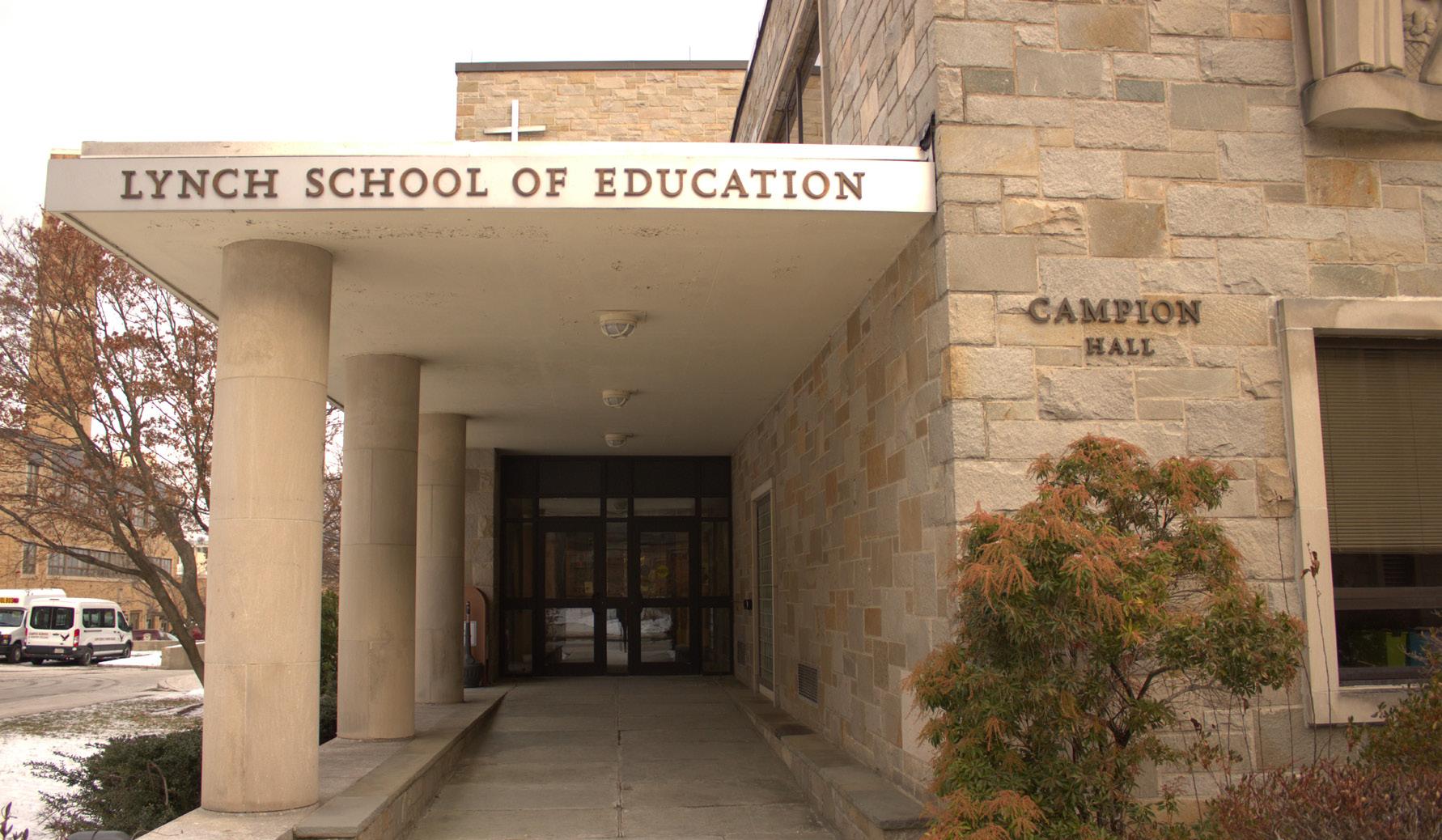
Palfrey, former assistant attorney general and current deputy general counsel at the Department of Commerce, said it is necessary to prevent public mental health crises from happening in the first place.
“What we need to do is invest in these communities,” he said.
“We need to invest in preventative health care and really try to take these challenges head on.”
Palfrey said he is in favor of single-payer health care—a universal health care system where all expenses are covered by a singular public system—since the current health care system significantly underinvests in prevention.
The candidates then discussed the attorney general’s role regarding the legalization of cannabis and in making the benefits of the industry accessible to all.
Liss-Riordan said she is concerned about large corporations taking over the cannabis industry.
“I am concerned when a small number of corporations get concentrated power in any area, and unfortunately, that already seems to be happening in the cannabis industry,” she said. “We need to make sure that the opportunities that have been created by this industry are accessible.”
People who were previously convicted of possession felonies for cannabis should have their records expunged, Liss-Riordan said.
“We still have people whose records are still marred from past conduct that is now perfectly legal in the state of Massachusetts,” she said. “We need to expunge those records.”
Campbell also said the attorney
general’s office has to play a crucial role in working with the statehouse to expunge the records of those convicted of cannabis possession felonies and help those currently imprisoned for such offenses.
“We absolutely need to do something about the people who are sitting in prisons,” she said.
Palfrey said in addition to freeing people from prison sentences for marijauna-related offenses that were previously illegal, all communities need to profit from the new cannabis industry.
“So many aspects of our economy are staggeringly biased towards the people at the very top and biased against communities of color,” he said. “We need to make sure that the cannabis industry, and this is not true at this moment, does benefit all of the communities that we serve in the commonwealth.”
Read the rest of this story at www.bcheights.com
experiences.”
A new study published by researchers in Boston College’s Lynch School of Education and Human Development details how the number of adolescents who carry guns increased significantly between 2002 and 2019.
“I think it’s a centrally important issue,” said Rebekah Levine Coley, a professor in the department of counseling, developmental, and educational psychology and a researcher on the report. “It’s a public health issue and a safety issue in our society.”
While the study, released on April 26, found the rate of adolescents carrying guns increased 41 percent over all cohorts of sampled youth, it reported the highest increase in white, rural, and higher-income adolescents.
Among Black, American Indian, Alaska Native, and lowerincome adolescents, rates decreased over the 17-year time frame.
Naoka Carey, a Ph.D. candidate in applied developmental and educational psychology at BC, worked alongside Coley with a team that drew from samples of adolescents aged 12 to 17 across the United States collected by the National Survey on Drug Use & Health.
Carey and Coley’s data was published in the April edition of Pediatrics , a research journal produced by the American Academy of Pediatrics.
“We submitted it to Pediatrics because we think it’s really important for pediatricians to not assume that any of the kids they see are likely to carry or not to carry.” Carey said. “They should be thinking about how to educate teenagers and their families about gun safety regardless.”
Since health care professionals and policymakers rely on gun carriage data for patient treatment and deciding policy, Carey said their research team wanted to collect up-to-date statistics for
these individuals along with parents and guardians.
“[Parents] really need to be thinking about being safe if they are going to be gun owners and they have a gun in the home,” Carey said.
Before Carey and Coley’s research, the majority of gun safety data was published in the 1990s. The ’90s, however, witnessed historic peaks in U.S. crime rates, Carey said.
“Crime rates have really declined since the ’90s, and that may be that young people are living in communities with less crime and they feel less need to carry, but that’s just a theory at this point,’’ Carey said. “It really needs to be tested.”
Carey and Coley’s research does not include data after 2019— and therefore does not account for the COVID-19 pandemic’s impact on gun carriage rates.
Read the rest of this story at www.bcheights.com
Shawna Cooper-Gibson, vice president of student affairs, said there are four challenges that “come in rotation” on her desk.
“The challenges [are] around sexual assault, around bias, around alcohol misuse, and around mental health,” Cooper-Gibson said.
In a roundtable talk on Wednesday, co-hosted by the AHANA Pre-Law Student Association and Boston College Mock Trial, Cooper-Gibson discussed how students can help foster a positive BC experience for the greater community, one that enhances BC’s strengths while still addressing challenges the University faces.
Cooper-Gibson said the intelligence, school spirit, and collaborative partnerships she sees at BC can all help enhance student life on campus. She then listed three additional traits she said can contribute to student success.
“There’s a trifecta,” Cooper Gibson said. “First and foremost, academics— y’all get your degrees. Second, we’re a Jesuit Catholic institution, so I want you to have some level of spiritual formation … and then third … I want you to have fun.”



Cooper-Gibson said she will introduce improved academic planning for freshmen in the fall, explaining how she wants all students, no matter their major, to have academic planning similar to that offered in the Carroll School of Management through Portico—a business ethics class for all freshmen in CSOM.
She also stressed the importance of freshmen supporting student-athletes and the greater BC community.
“I don’t need you to go to an athletic event, but I do want you to support student-athletes,” CooperGibson said. “It’s how you choose your own adventure and identify those key
Cooper-Gibson emphasized the importance of creating close ties among the first-year students, explaining how she plans to adapt the Week of Welcome to accomplish this.
“We’re keeping all the first-year students together by floor over the entire weekend,” she said. “I’m going to have you with your floor because your floor is your family. … There are people that you’re not going to agree with, but you have to respect people, and I think that’s what’s missing. You know, I’ve heard about signs being torn down. That’s not acceptable, but the first battle in that is engaging in conversation and getting to know one another.”
Cooper-Gibson said she hopes to partner with student groups to facilitate conversations on subjects including identity, diversity, ethnic heritage celebrations, and accessibility and disabilities during the Week of Welcome.
“Part of the reason that we’re doing the opening weekend programming is because, how many of y’all did the DiversityEdu module?” Cooper-Gibson said. “That’s not the way you all learn about diversity, but what I felt like I was doing an HR training.”
Everyone can engage with themes surrounding diversity, Cooper-Gibson said, as there are types of diversity beyond race, gender, ethnicity, and sexual orientation.
“I’m the youngest in my family,” Cooper-Gibson said. “I’m also the shortest in my family. I became very scrappy very quick, and that speaks to my identity too. And so there’s different pieces of which people can tell their stories.”
At the end of the talk, CooperGibson welcomed questions and conversation with around 30 students
Read the rest of this story at www.bcheights.com
Newton Mayor Ruthanne Fuller said that there is a long way to go before communities across the country—including Newton—reach fair and equitable housing in a Zoom presentation on Tuesday afternoon.
“I’m always kind of stunned when I read carefully what fair housing means,” Fuller said. “The reason [fair housing] takes my breath away is—whether it’s Newton or Framingham, Lexington or Wayland—we know we have such a long way to go to actually have fair housing.”
Fuller and other city employees joined attorneys from Suffolk University Law School at a workshop Tuesday hosted by the WestMetro HOME Consortium to outline the history of unfair housing in the U.S. and how communities can establish fair practices.
The consortium is a group of cities and towns in the Greater Boston area that prioritize fair housing.
“The thirteen cities and towns that belong to the Consortium commit to taking meaningful and measurable actions to break down barriers to fair housing choice and affirmatively further fair housing for all protected classes,” according to Newton’s website.
Jamie Langowski, a practitioner in residence and assistant director of the Housing Discrimination Testing Program (HDTP) at Suffolk
Law, said that unfair housing is part of the fabric of the country’s history.
The first example of unfair housing was in 1619 with the importation of the first African slaves, and it persists today, according to Langowski’s presentation. All levels of government and private advocacy groups—like HDTP—continue to advocate for fairer housing practices.
One of the policies that has
contributed to the current state of housing is redlining, a practice that creates race-based neighborhoods in places such as Newton, according to Kelly Vieira, a clinical fellow at Suffolk Law’s HDTP.
“[Redlining] was often racially motivated in that those neighborhoods that were marked ‘red,’ as particularly risky, were often majority minority neighborhoods— neighborhoods that were primarily Black, for example,” Vieira said.
Vieira presented two maps of Greater Boston—one from the 1930s and one from 2010—side by side, showing a correlation between race and which areas are “green”—or safe to give loans to—by the federal government and which areas are “red”—where loans for homes are rare.

The green areas were mostly in the suburbs outside of Boston and were predominantly populated by white residents, while the red areas were more toward the southern parts of the city, including neighborhoods such as Roxbury and Dorchester, where a greater proportion of people of color live.
Vieira said that these racially segregated areas exist today, and the effects of this redlining on the wealth of minority groups also persist.
The Federal Reserve Bank of Boston surveyed the net worths of families in Metro Boston and recorded a great discrepancy across races. For white families, the average net worth was $247,500, and the average net worth for Black families was $8.
These inequalities in the housing process exist despite federal, state, and local laws.
One major factor in combating unfair housing is the federal government’s establishment of protected classes of people. The Fair Housing Act of 1968 establishes these protected classes as race, color, religion, sex, disability, familial status, and national origin. Langowski said that sellers of homes cannot discriminate against people based on certain characteristics.
Massachusetts’ anti-Discrimination law, Chapter 151B, adds ages 40 or older, military status, gender identity, sexual orientation, marital
status, receipt of public assistance, genetic information, and ancestry as protected classes in Massachusetts.
Other barriers to applying for housing include application fees, holding deposits, eviction records, criminal history, and minimum income requirements, according to Langowski.
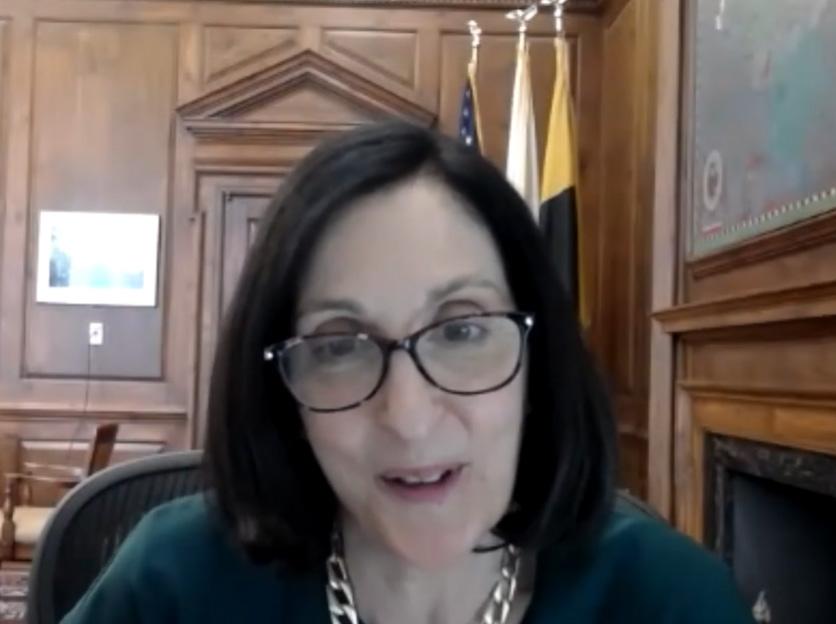
While there are many barriers in the search for fair housing—especially for historically discriminated against groups—Langowski outlined some tips that can help prospective renters and owners navigate this flawed system of housing.
Langowski recommended that prospective tenants save advertisements, emails, and texts from real estate agents, and keep track of prices so they can reevaluate their options later.
Despite Langowski’s tips, Vieira said that it is difficult for many people in Greater Boston to escape discrimination in the housing process.
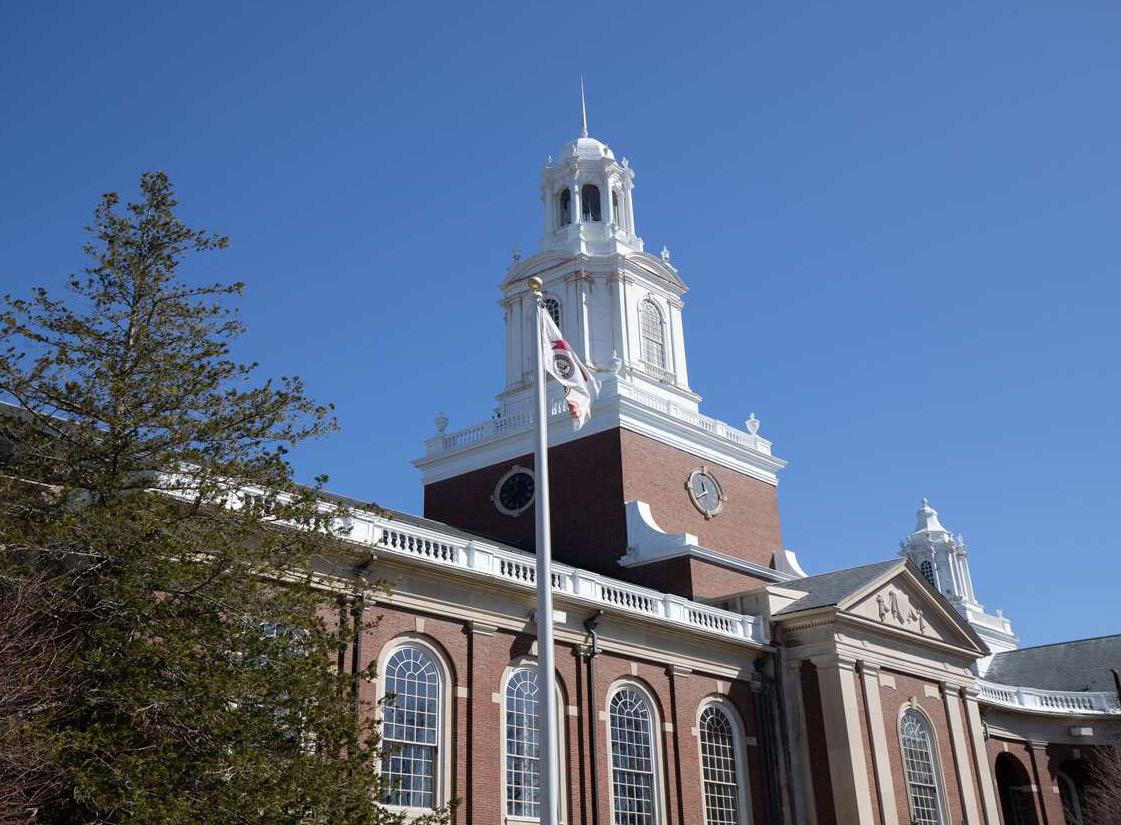
In a study that Suffolk University conducted from 2018 to 2019, 71 percent of Black people experienced some form of discrimination in the housing process. Agents did not respond to the inquiries of many of the study’s Black participants and made it harder for them to tour units, according to the study. The agents also inaccurately represented the number of units available to the Black participants.
Vieira said that this purposeful ignoring of prospective tenants—or ghosting—was the most prevalent form of discrimination in the study. Ghosting, in this case, is when a housing broker does not call back potential tenants who mention they have housing vouchers, which assist low-income families, disabled people, and the elderly.
Despite the passage of new laws addressing housing discrimination, the U.S. still has a lot of work to do to make renting and buying fair for all, according to Langowski.
“[The United States] has never actually addressed what we did [with unfair housing practices]—we only said, ‘We’re gonna stop doing it from this point forward,’ and I don’t know if that’s enough to fix this,” she said. n
Despite a rise in new COVID-19 cases in Newton, new hospitalizations and deaths in the city remain lower than during previous surges of the virus.
No one in Newton died from COVID-19 between April 21 and 27, according to Mayor Ruthanne Fuller’s newsletter on April 28. In the 14-day period prior to April 21, two Newton residents died with the virus, according to Fuller’s April 14 and April 21 newsletters. As of April 28, Newton-Wellesley Hospital was caring for six patients with COVID-19, none of whom were in the intensive
care unit, according to the newsletter. The hospital reported a high of 12 cases in the week from April 21 to 27, Fuller wrote.
“This number, however, still remains much lower than what was seen at the peak of the last surge in January when 58 patients were hospitalized,” she wrote.
In the seven-day period from April 21 to 27, Newton recorded 253 confirmed new cases of COVID-19, compared to 177 cases the week before, according to the newsletter.
At Newton Public Schools, cases have also increased recently.
From April 14 to 27, the school district reported 179 student cases of COVID-19 and 52 staff cases,
according to the city’s COVID-19 dashboard. In the two weeks prior, the district reported 93 student cases and 17 staff cases.
In Massachusetts wastewater, though, samples indicate that the most recent surge may have peaked. Test results taken from RNA samples from wastewater at the Deer Island Wastewater Treatment Plant—the state’s largest—serve as an indicator of COVID-19 infections. More RNA test samples had the virus present on April 19 than on April 26, according to data from the Massachusetts Water Resources Authority.
“This data has been a reliable predictor of virus levels throughout the pandemic,” Fuller wrote. n
CONNOR SIEMIEN / HEIGHTS EDITOR Kelly Vieira presented maps to show correlations between race and redlining locally. STEVE MOONEY / HEIGHTS EDITORThe city will increase its snow and ice removal budget to $4.9 million, which is equal to the median of the last five years but $400,000 greater than the average over that time span.
The proposal also includes $100,000 for legal settlements. The amount is smaller than the amount used in each of the past five fiscal years. In the fiscal year 2022, settlements cost the city $1,777,106, with two cases accounting for $1.6 million.

though the administration is uncertain to what degree, Curley said.
Councilors Becky Grossman, Brenda Noel, and Christopher Markiewicz said that analyzing trends in the budget would help the City Council make a more informed decision.
Markiewicz also suggested that the City Council compare Newton to other similar cities when considering the budget.
“Think how we compare with
some other comparable cities,” he said. “I remember when the defund [the police] movement was active, I went and looked at what we spent on police as a percentage relative to other communities, and I was surprised—I actually thought the figure was pretty low.”
Discussions concerning the FY2023 city budget will continue in the coming weeks. The City Council will vote on the budget in late May. n
By Ven Cernjul Heights StaffNewton Comptroller Stephen Curley explained in further detail the fiscal year 2023 budget—first presented by Newton Mayor Ruthanne Fuller on April 19—to the City Council at a meeting on Wednesday.

The presentation elaborated on the technical details of the city’s $480 million budget. The city plans to collect $403.4 million—84 percent
of the proposed budget—from taxation. Newton will also acquire funds through other sources, such as licensing fees and state and federal aid.
Curley said that the budget would allocate $84.6 million in wages for municipal employees, a $1.1 million increase from the previous fiscal year. An additional $800,000 will be used for worker compensation, and an additional $250,000 will go toward health insurance benefits compared to the current fiscal year.
Expenses that surpass the predicted budget, such as unanticipated legal settlements, will be covered by the $1.5 million in free cash the city holds, Curley said.
The budget reflects the projected increase in energy costs, Curley said. The total proposed budget for energy and utilities is $3.9 million, a 10 percent increase from FY2022.
The increase is due to estimated rises in the price of gasoline and diesel into the next year, according to Curley.
The price of water and sewage maintenance is likewise projected to increase in the next fiscal year,
The attorney general filed the case against Cardinal Health, McKesson, and AmerisourceBergen— which are the nation’s largest drug distributors—and Johnson & Johnson (J&J), which manufactures opioids.
The states alleged that the distributors did not have safeguards that would prevent illegitimate orders or opioids from reaching the streets, and J&J misled doctors and patients about the addictiveness of
opioids, according to a press release from the Massachusetts Attorney General’s Office.
Massachusetts will receive over $500 million from the settlement, according to the release. Each state’s share of the settlement was determined using a formula that takes into account the impact of the crisis on the state.
Factors include the number of overdose deaths, number of residents with substance use disorder, number of opioids prescribed, and the state’s population, according to
the release.
J&J has agreed to pay a total of $5 billion over nine years nationwide, with $3.7 billion of the sum paid within the first three years.
The other three companies agreed to pay $21 billion over 18 years. The settlement also implements significant industry changes to prevent future opioid crises, though the release did not specify what those changes entail.
“Massachusetts led the nation in taking on the opioid industry, and we will lead the nation in delivering
prevention, harm reduction, treatment, and recovery,” Healey said.
“Cities and towns across our state worked together to secure more than half a billion dollars, and we are committed to using every dollar to provide the services families need.”
Approximately $310 million will go into the statewide Opioid Recovery and Remediation Fund to ensure capital is spent on harm reduction, treatment, and prevention.
The commonwealth plans to distribute the other $210 million across the 338 municipalities in the commonwealth that signed on to receive funding.
“Whereas the default municipal share for settlement funds had been 15 percent, Massachusetts cities and towns will split a 40 percent share in total state allotment,” Fuller, who is also the president of the Massachusetts Municipal Association, said at the conference.

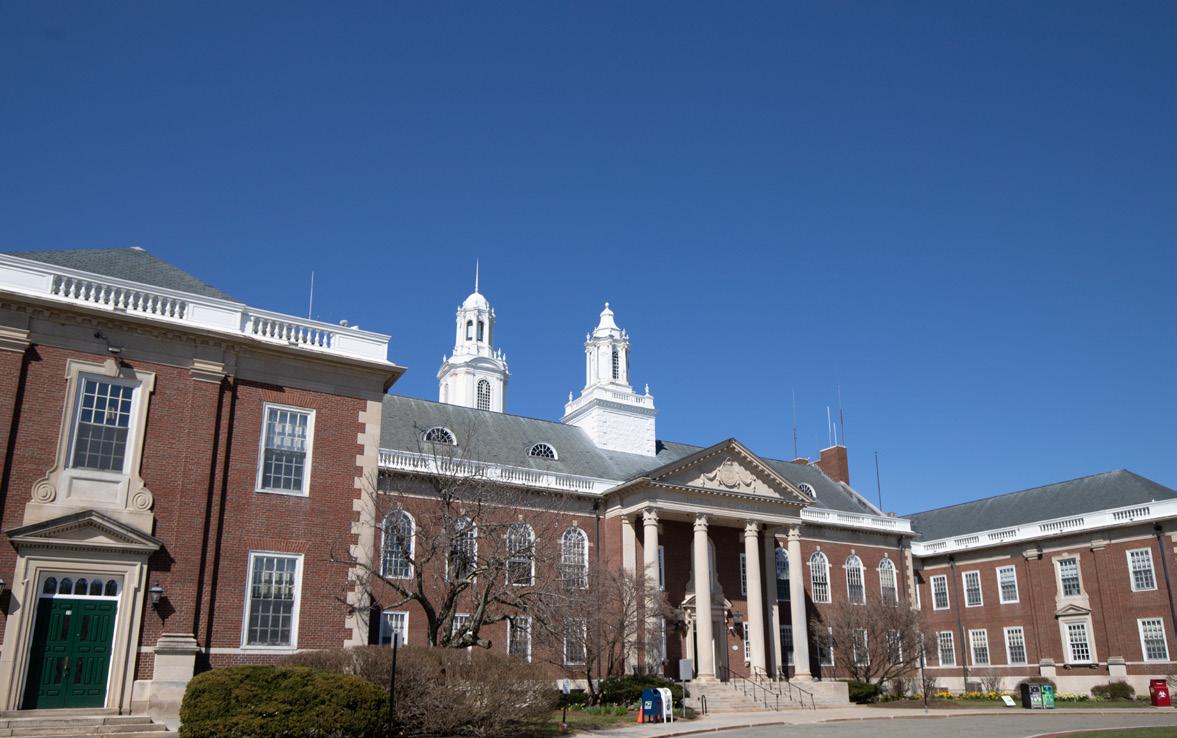
Of the $210 million distributed across cities and towns in Massachusetts, $2.12 million will go to Newton, according to Fuller’s newsletter. The city will use the money for programs and services that help those struggling with substance use disorder, and the money will also help establish new drug education and prevention initiatives for residents of all ages.
“This public health crisis has caused unspeakable trauma, suffering, and grief to many individuals
and families across Newton,” Fuller wrote in her April 7 newsletter. “I will work with Newton Health and Human Services Commissioner Linda Walsh and Director of Social Services Meghan Kennedy on how best to invest these funds.”
The newsletter also outlined the city’s general drug prevention goals, including eliminating the onset and initiation of substance use within the community, reducing the stigma associated with substance use disorder, and supporting Newtonians experiencing the effects of substance abuse.
In conjunction with Fuller, Walsh, and Kennedy’s efforts, the city is prioritizing the development of the Newton Substance Use Prevention Coalition and working with the Newton Police Department to expand partnerships across the community, according to Fuller’s newsletter.
The first two settlement payments will reach Massachusetts cities this spring and summer, followed by yearly installments from 2023 to 2038, according to the newsletter. Fuller shared her confidence in the positive impacts of the settlement payments.
“While funding does not erase the pain that substance use disorders create, these funds will directly help fortify and expand programs and services for Newton individuals and families,” Fuller wrote. n
Tall Girl Worshiper. Corn Girl. Club Kevork. Phrases such as these frequent Boston College students’ daily vocabularies. For many other universities, on-campus vernacular originates from popular social media sites such as Reddit or Yik Yak, but something sets BC apart—Herrd.
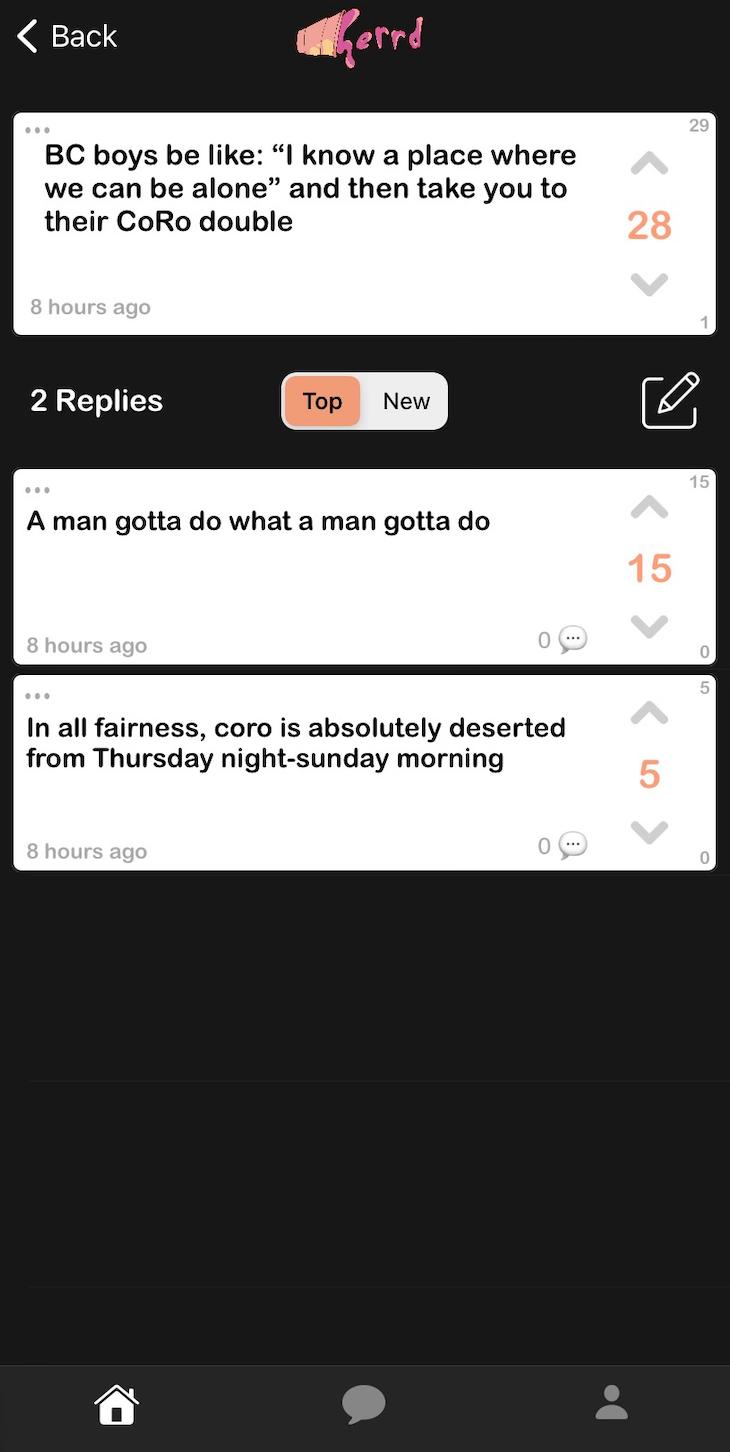
Isaiah Mathieu, co-founder of Herrd and BC ’20, said the initial inspiration for the app came from a study abroad trip to Madrid. Mathieu said he and Carter Beaulieu, co-founder of Herrd and BC ’20, met while abroad during the summer after their freshman year.
When deciding where to go out in Madrid, Mathieu said promoters advertised businesses in a way he and Beaulieu found annoying, so the two returned to BC with an idea to create a platform for students to see where their friends were planning to go out.
“Carter and I left Madrid and came back to the campus with an idea to start … an anonymous social media app that allowed people to see who was going where or how many people were going to a given event,” he said.
Mathieu and Beaulieu built the first version of Herrd during the summer of 2019 as they were going into their senior year at BC.
“When we first created Herrd, the idea was nothing like what it is today,” Beaulieu said. “It was basically [for people] to be able to tell each other where we were going on a given night without having to send mass messages to people and ask where people are going. You would basically just select the lo-
cation you’re going to and you see everybody was going there and that was the main idea.”
During their senior year, Beaulieu said about 80 students used the
posting what, you’re within the same community, so it builds a real good connection,” Beaulieu said. “It’s brought a lot of community together, especially with current events going on or memes that people share or stuff that pops up every single day.”
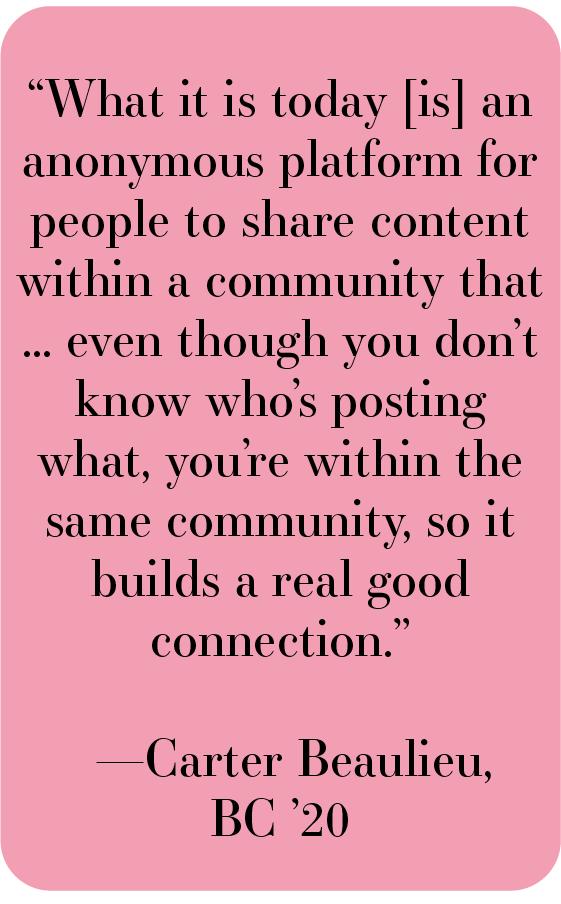
Beaulieu said he constructed the software with knowledge he gained from a mobile app development class he took with professor John Gallaugher while at BC, explaining how the class gave him the rudimentary information necessary to create the foundations of the app.
Though he occasionally asked for help from others, Beaulieu said he mainly developed the app by himself.
Since the second version of the app launched after Mathieu and Beaulieu had graduated from BC, Mathieu said they needed to leverage the connections they still had on campus to spread the word. From texting several students in
then Carter [Beaulieu] had checked the database and we were just receiving new users by the minute, and that was really when everything just took off.”
After growing from approximately 70 users in the 2020 fall semester to more than 6,000 this spring, according to Mathieu, Herrd now serves as an anonymous forum for BC students to post whatever is on their mind, from on-campus information to memes to party locations.

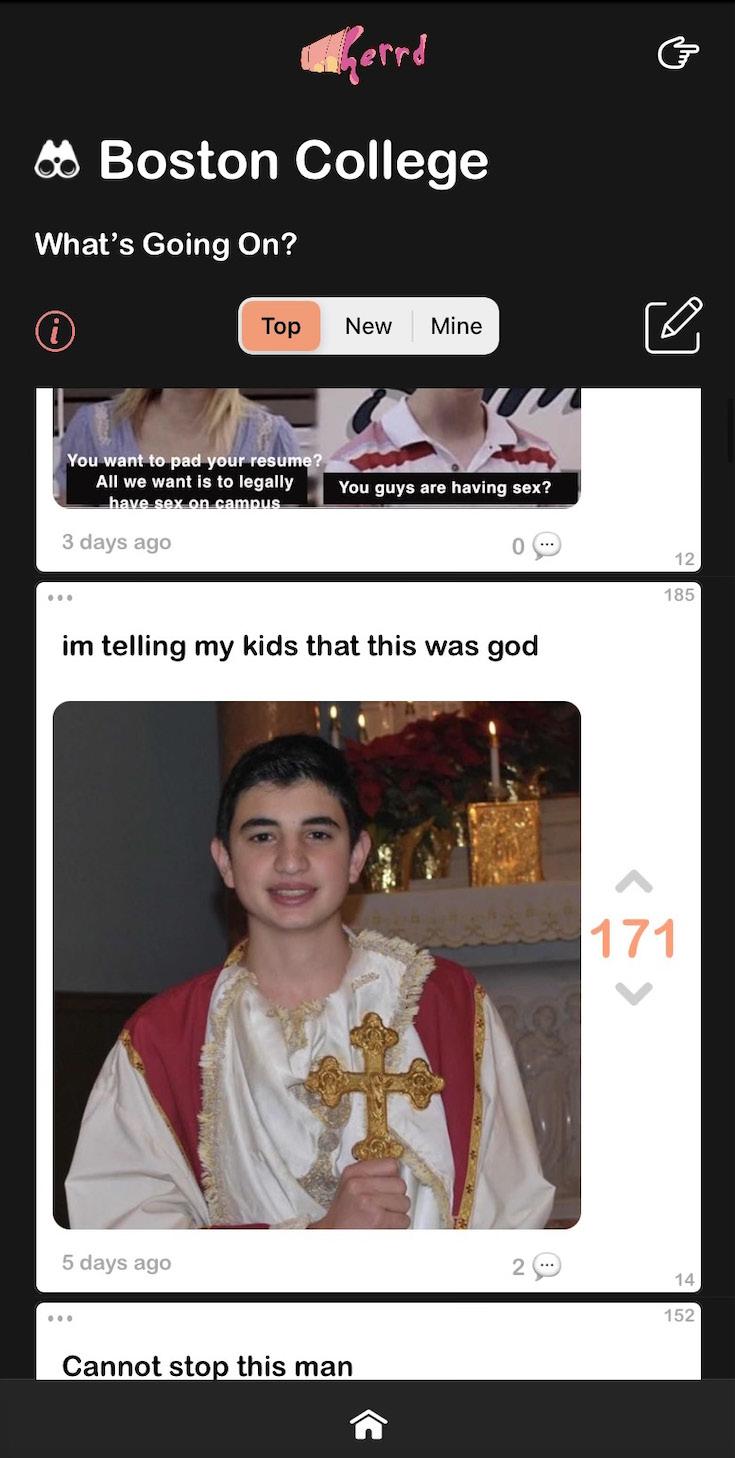
As Herrd has become more popular on the Heights, some students have become “Herrd famous,” as they are frequently posted about on the app.
Ben Donohue, CSOM ’24, and his roommates went viral on Herrd in late February for a beach-themed party they hosted on the eighth floor of Walsh Hall.
Donohue said he and his roommates would occasionally throw parties in their eight-man, and one
should get sand for it,’” Donohue said. “And I thought it was a joke.”
Donohue said when he returned to his dorm the Wednesday before the party, he saw his roommates had bought 15 bags of sand from The Home Depot.
“They had gone to Home Depot, and [there] were just 15 bags of sand—50 pounds of sand—sitting in our room, [and] I was like, ‘I guess we’re doing this,’” Donohue said. “That’s kind of how it came about.”
The Sunday morning after the Saturday party, Donohue said he saw posts on Herrd about their party and found them funny.
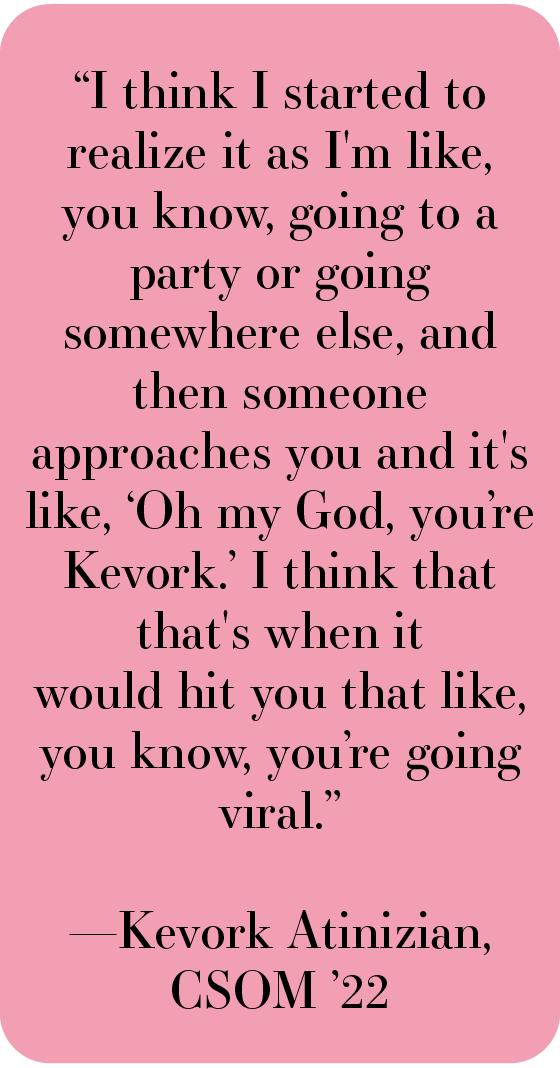
In some posts, people mentioned how they tracked sand to their rooms and throughout Walsh, Donohue said.
initial form of the app.
After BC sent students home at the onset of the COVID-19 pandemic in March of 2020, Mathieu and Beaulieu had to shift their mindset.
Without students going out, they needed to change its objective to keep the app alive.
“We changed to the model that it is now, where instead of [seeing] where people are going, you can basically express yourself and provide content anonymously within your community in similar ways that we’ve seen before on other platforms but in a better and, in our opinion, a … safer way,” Beaulieu said.
After months of brainstorming and remodeling, the two relaunched Herrd in the fall of 2020, releasing the first version of today’s model to the BC community.
“What it is today [is] an anonymous platform for people to share content within a community that … even though you don’t know who’s

the Class of 2021 to reaching out to on-campus organizations on various social media platforms, the pair promoted the second launch.
“What we did was follow major clubs or programs on campus and basically said, ‘Hey, we have this anonymous social media app. If you could just post a story of us just explaining to your followers what this is and why it would be beneficial to them, [and] in exchange we could do something on our end for you in the future,’” Mathieu said.
Although these methods worked to an extent in gaining traction on the app, Mathieu said the 2021 UGBC election was the main accelerator of the app’s growth at the beginning of the 2021 spring semester.
After seeing hundreds of posts about the election, Mathieu said he thought one user was spamming the app.
“My initial thought was, ‘Oh, somebody is trying to screw around with the app,’” Mathieu said. “But
of his roommates came up with the idea of a beach theme.
At first, Donohue said they purchased fake blow-up palm trees, beach balls, and wall decorations, but the weekend before the party, they decided to take the theme even further.
“The weekend before, my roommate Blake was like, ‘You know, we
“Like I saw … a bunch of people like making jokes … about it,” Donohue said. “Me and my roommates were all looking at it and laughing, and we thought it was funny.”
Katherine Bauer, MCAS ’22, said she also finds humor in being posted about on Herrd. She has been featured on the app several times for frequently wearing bright Lilly Pulitzer outfits.
Users refer to her as “Lilly Pulitzer Girl” and post pictures of her vibrant outfits. Bauer said she sees how someone could be upset by being discussed on Herrd, but she and her friends love to joke about her Herrd fame.
“Because I’ve been wearing it for so long, it doesn’t look as vibrant as it is,” Bauer said. “It just feels like normal clothes to me. So, it doesn’t seem like in my head it would be something that would stand out, but then I came through Herrd to know that it does.”
Bauer said she thinks Herrd has become less prominent on campus than it was when it was first released.
“I would say almost everybody I knew was super active on it for a while, but now it’s definitely phased out,” Bauer said.
Robert Rasor, MCAS ’25, a cashier at the Rat, became Herrd famous for wishing students a “rat-tastic day.” He said he came up with the phrase to try to make his friend laugh during a difficult week of midterms.
“The first post about it was … the first day I said it I think,” Rasor said. “After we got back from break, people started talking about it a lot more on Herrd.”
As he continued to wish students a “rat-tastic day,” Rasor’s presence on Herrd continued to gain traction.
“When someone first sent it to me, it had like two upvotes, and I was like, ‘Oh, that’s funny,’” he said. “And then, by the end of the day, I was like the top post of the day.”
he was first introduced to Herrd early in his junior year while at a friend’s off-campus house when he saw neg ative posts about himself.
app downloaded or someone else had the app downloaded, but people were saying some pretty negative things about me,” Atinizian said. “And that’s when I first found out about the Herrd app.”
ian continued to circu late on Herrd after the impeachment of former UGBC President Chris tian Guma, BC ’21—who Atinizian served as vice president under—and as he ran for UGBC president in February of 2021.
Atinizian from his childhood and high school, frequently becoming top posts. Atinizian said that this not only made him feel uncomfortable and unsafe, but it hurt as well, as students posted false claims about his character.
viral figure on Herrd and the UGBC campaign took a toll on his mental health, Atinizian said.
“It was early February, before the campaign ended, and then after the campaign ended, I was [at] my low point,” Atinizian said. “Yes, I think people would have still posted things
didn’t happen, too, coincidently.”
For Atinizian, there wasn’t a particular moment when he realized he was Herrd famous, but it was rather a combination of things, he said.
ministration and the BC Police Department (BCPD). The relationship between the founders and the University began after a student posted a negative message on the platform, and Mathieu said they have since developed a strong relationship with open communication.
“[We] definitely [have] an open line of communication, basically sharing our thoughts of how we would want to keep the community safe—the BC community as well as the Herrd community safe—and, as well, being listeners to any feedback that they would have for us to further improve the app,” he said.
The Herrd team especially works with the University when a student posts something harmful to the BC community, such as hate speech or personal threats.
“Those situations are when we engage with [the University] and
Henry Valentine, MCAS ’22, is an active Herrd user who first downloaded the app shortly after its second launch. He said he usually posts five to 10 times a day and is on the top of Herrd once a week on average.
“I’ve definitely had stretches where I’m really into it and then stretches where, maybe when I’m at home over break or something, where I’m not as into it,” Valentine said.
Valentine said his posts are usually humorous or highlight interesting things that he sees around campus, and the anonymity of the app allows people to be more open with what they say, which helps foster connections.
“Obviously you don’t know who people are, but that really allows people to be authentic and kind of bond together over a lot of things,” Valentine said.

On the other hand, Joey Watro
with stress just by posting difficulties anonymously and having students agree or disagree with them—knowing they’re with them too.”
Similarly, Megan Haught, CSOM ’24, said Herrd can be both a helpful and harmful force on campus.
about me on the app, yet I don’t think it would have gone viral if other things
Kevork for Atinizian’s involvement in launching the Hillside restaurant.
“You know, it’s funny whenever you’re in an ice cream truck with Jeff Haffley and [Earl] Grant handing out ice cream to the entire student body and people are posting and saying things, and then you’re like … it’s funny and it’s in good fun,” Atinizian said.
Although Atinizian is still unsure of his overall thoughts on the app, as it has the ability to do both harm and good, he said he does believe that it ultimately validated the good work he did as UGBC vice president.
“Herrd also weirdly solidified the good work that I did as [UGBC] vice president,” Atinizian said. “And this is what people forget too. I was the only vice president of UGBC that was strictly entirely under the duration of COVID restrictions, and that also took a toll on my mental health with everything else, you know, because that’s not the year that you want.”
Because of Herrd’s growing impact on BC’s campus, Mathieu said he and Beaulieu have developed a relationship with both the BC ad -
two also use various measures to determine if posts’ content is inappropriate and should be removed from the platform, Mathieu said, which is also outlined in the app’s terms and conditions.
“When we see a post that’s reported, we can either straight up delete it [or] we might delete it and then send a warning email to that user saying if they post anything like this again, [it] will permanently ban their account,” Beaulieu said. “Or if it’s worse than that, we’ll obviously delete the post and then report it either to BCPD or BC admin if it’s something super pressing that requires that attention.”
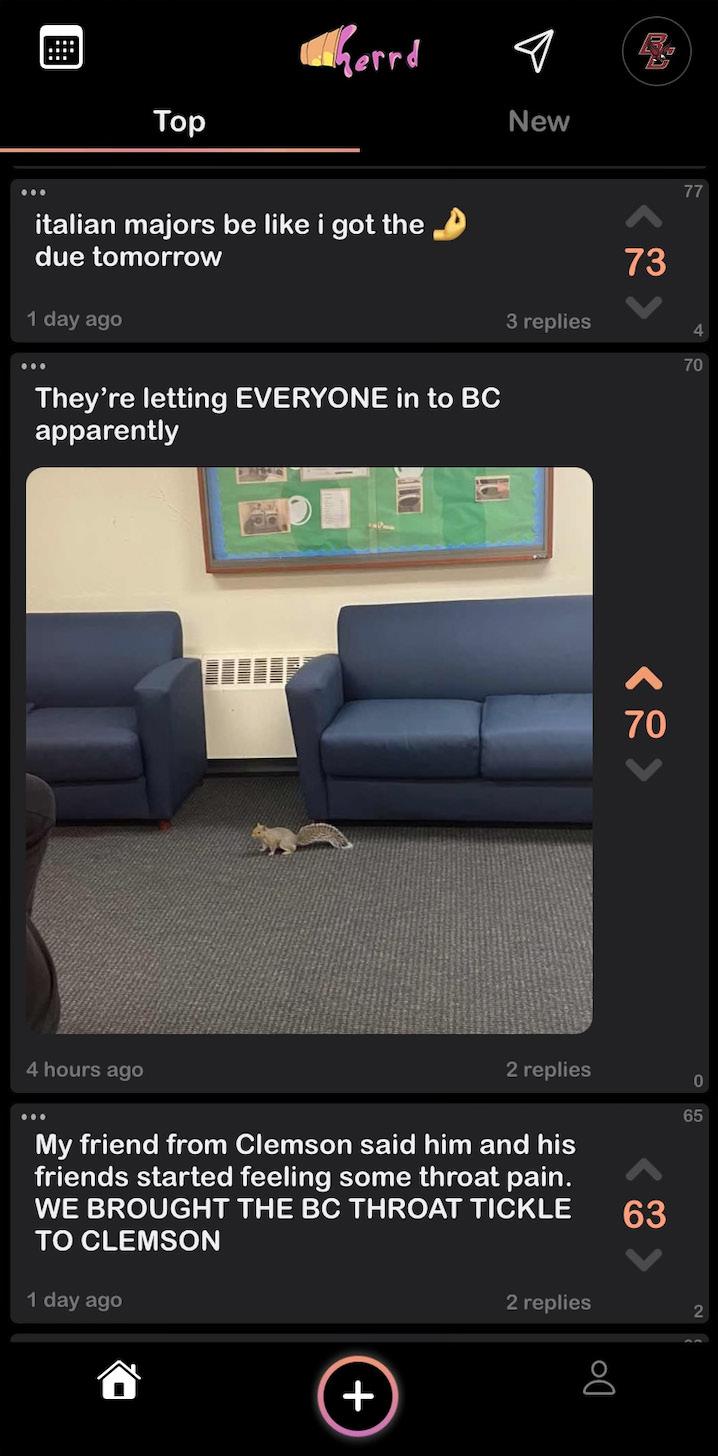
To mitigate the chances of future harmful incidents, Beaulieu said he and Mathieu are working with the University to improve the app’s features.

Tom Mogan, associate vice president for student engagement and formation, did not respond to The Heights’ request for comment.
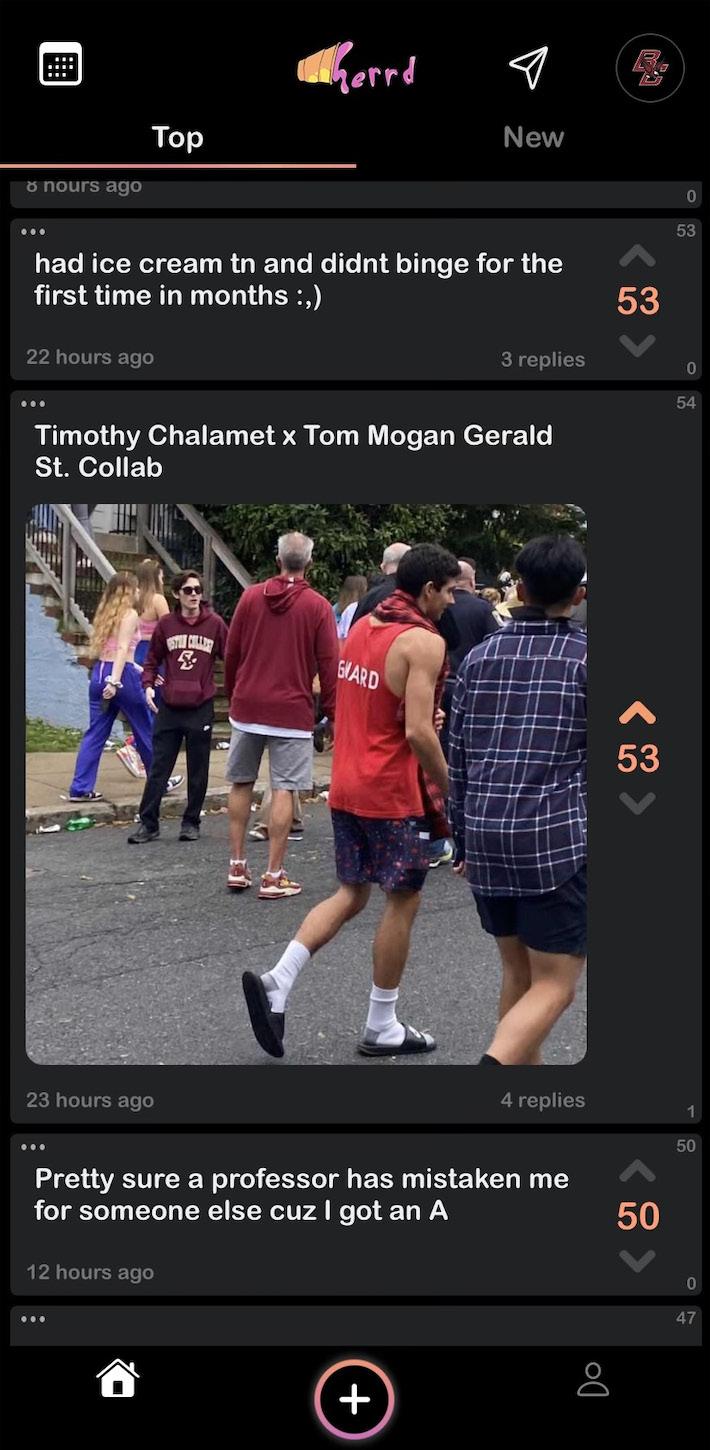
Despite the harmful posts, many students use Herrd for more lighthearted purposes.

“I think that it kind of adds [to] rumor culture just by posting [and] hearing what things happen,” Fanning said. “But I also think it helps students
“You find out news about things happening on campus, but because
looking for information on certain things … just to see what’s going on around campus,” Mathieu said.
To potentially expand Herrd, Beaulieu and Mathieu are considering different options. Beaulieu said they are focusing on perfecting the app’s current features by listening to feedback from the BC community and through regular software updates.
In the future, they hope to either expand to other universities or the app’s audience to young adults in various cities, he said.
“We’re getting close to a point where we do want to expand, and kind of our two options are going to other schools, [or] there’s another interesting route … where we have explored the idea of expanding Herrd not only to other colleges, but to like major cities that young adults might be living in after school,” Beaulieu said. “Whether you’re in Boston or New York City or other major cities, [you can] have the ability to be a part of a Herrd within that city.”
It takes a well-coordinated band to play through technical difficulties. A band that can turn a broken saxophone into a win goes beyond that. Indie rock band Photo Negative did just that at the BC’s Best competition as part of Boston College’s 24th annual Arts Festival on Friday.
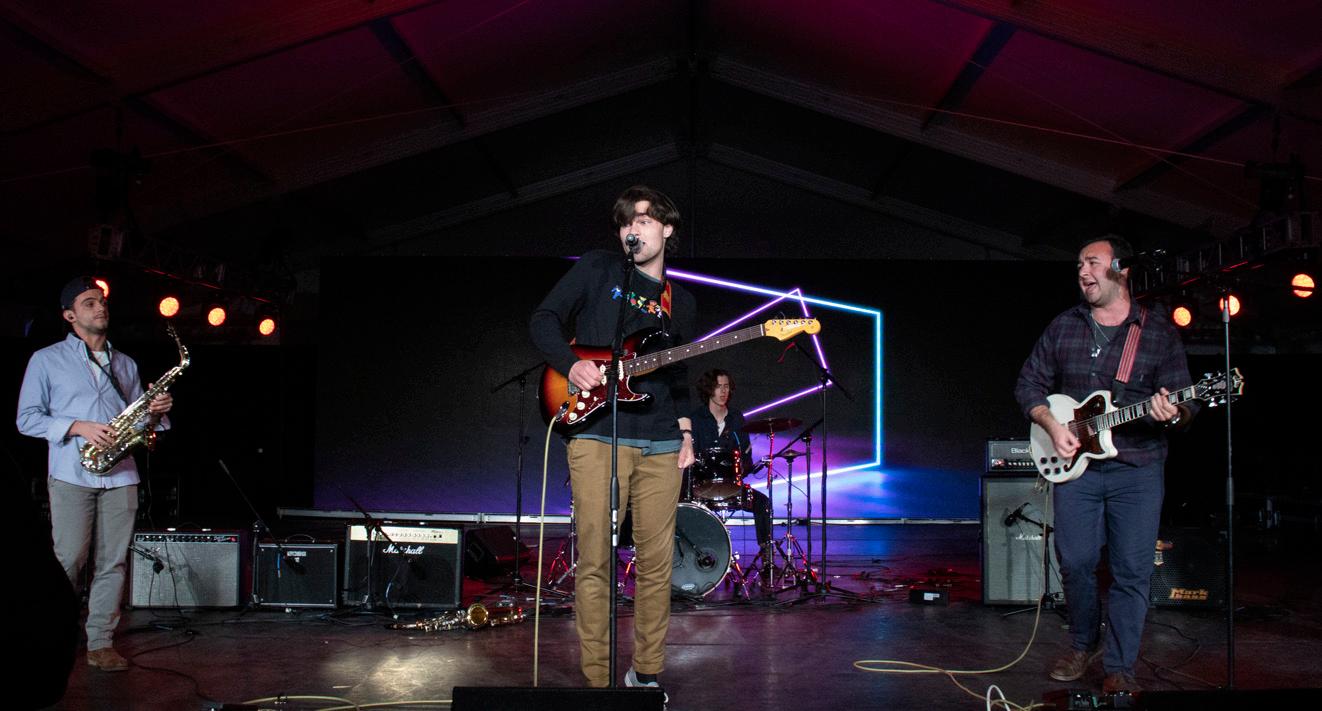
Disaster struck when singer and guitarist Benjamin Crandall, CSOM ’23, who planned to debut his saxophone skills, assembled his saxophone and his mouthpiece snapped off. Saxophonist Stephen Ventura,
CSOM ’22, played solo while Crandall dropped the saxophone and went back to finish the song on his guitar. The band played through the incident, finishing its set without any hiccups.
“You just witnessed the death of my saxophone,” Crandall joked to the crowd.
Despite the initial technical difficulties, Photo Negative showed off its indie rock sound and smooth song transitions to win the title of BC’s Best. As the winner of the contest, Photo Negative, which recently released its second EP, will open for Modstock headliner Dominic Fike at BC on May 5.
Photo Negative competed against two other bands that qualified for the competition following their performances at the Battle of the Bands. Jamsexual and Uncommonwealth, which recently released its first EP, took the stage earlier in the night. All three bands played original songs that featured groovy rock rhythms and guitar solos. Jamsexual started off the night
The spring colors blooming on Boston College’s campus complement students’ colorful artwork on display this weekend. Photographs of people and places near and far, paintings of flowers, and graphic self-portraits line select buildings for the Arts Walk at BC’s 24th Annual Arts Festival.
The vast variety of works displayed on the Arts Walk demonstrate the range of creative talents of BC students. The Arts Walk, running from April 28 to April 30, displayed student artwork all throughout campus, hanging on the walls of 245 Beacon Street, Gallery 203 in Carney Hall, Devlin Hall, Maloney Hall, and Robsham Theater.
To accompany the art on display across campus, the BC Arts Council put together an Arts Walk Podcast. In this podcast, visual arts director Yifan Wang, MCAS ’22, and visual arts assistant Megan Cassidy, MCAS ’24, interviewed some of the artists whose work is in the exhibit.
Although visitors don’t have to follow a particular order, the Arts Walk begins in Gallery 203 in Carney Hall. The student artists come from many different academic disciplines, ranging from finance to neuroscience. Nature is the dominant focus of many of the pieces, including intricate paintings of flowers and a closeup photograph of delicate hands.

One work hanging in Gallery 203 was a triptych by Caroline Burke,

Students’ art hung in Gallery 203.
LSEHD ’24, entitled “Manmade.” The drawing, done in pencil, spans three panels and features a bee in the middle panel.
In her Arts Walk podcast episode, Burke explained that “Manmade” was originally untitled when she submitted it as a final project for her drawing class, but she decided to give it a title for Arts Fest. The title “Manmade” was inspired by what would happen if bees were to go extinct. “Manmade” calls on people to respect the environment, according to Burke.
“It’s like a commentary on how not only do we need to respect our environment but also respect each other,” Burke said. “A lot of the disorder and suffering emerges from the hands of man.”
The artwork of Francisco Serrano, CSOM ’23, in Gallery 203 also centers around a bee. He took his
Read the rest of this story at www.bcheights.com
with some crowd-pleasing rock that had the audience dancing. Uncommonwealth rocked the crowd with a new song titled “Outsider” and capped its performance off with an audience request to play the band’s EP’s lead single “Phoenix from Mars.”
The bands also shared the stage with the three singer-songwriter finalists. Kate Ginley, MCAS ’23 performed solo. Cole Dumas and Colin
Martin, both MCAS ’24, played as the duo called Whistle Rock, and musical pair Ali Chalmers, MCAS ’22, and Tor Newell, CSOM ’22 performed as well.
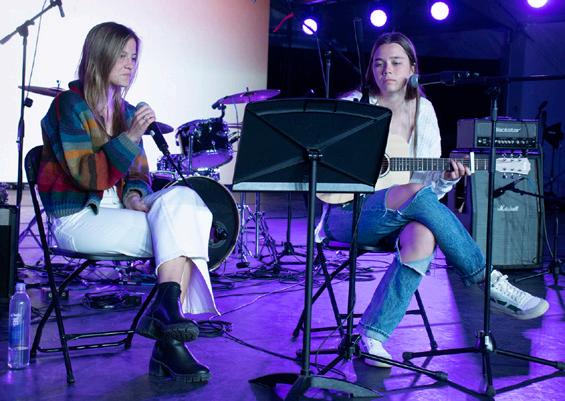
The singer-songwriters all submitted recorded performances to the BC Music Guild, which selected the



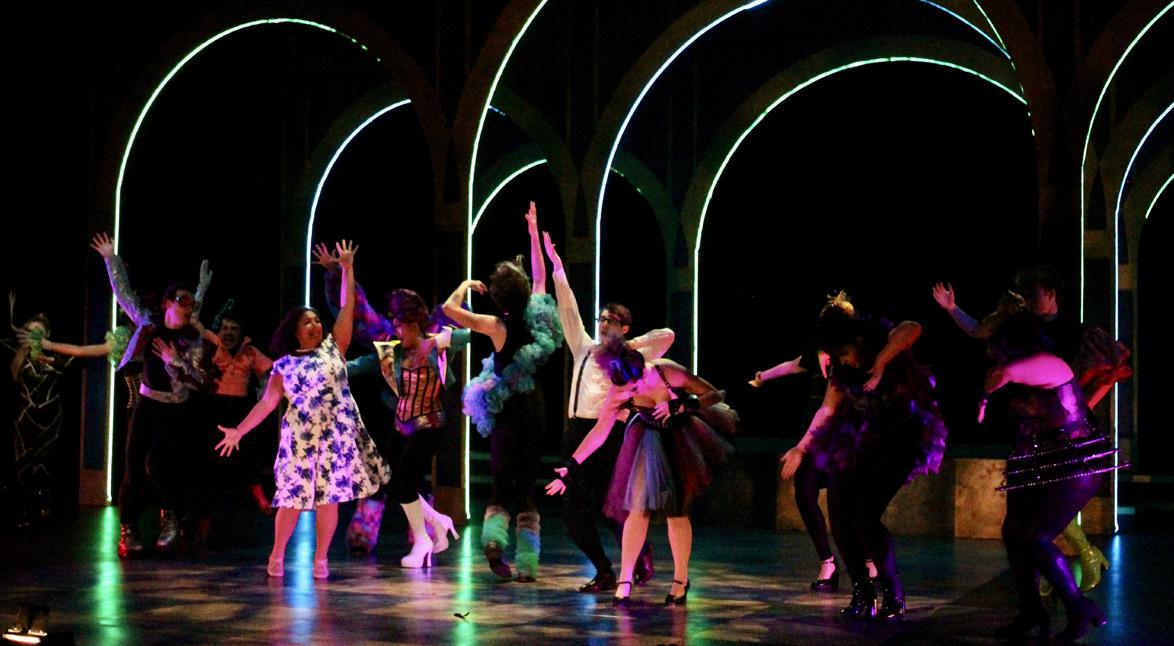 By erin Pender Heights Staff
By erin Pender Heights Staff
High heels, glitter, and corsets were the garments of choice for the characters engaging in Dr. Frank ‘N’ Furter’s enticing life of pleasure in The Rocky Horror Show. The soaring vestibules of the “Frankenstein Place” and the brightly colored lights and costumes transported the audience to Frank ‘N’ Furter’s castle. A few audience members even dressed up to match those on stage.
From April 27 to May 1, the BC theatre department’s production of The Rocky Horror Show, directed by Monan Professor in Theatre Arts Summer L. Williams, took over Robsham Theater’s main stage.
Richard O’Brien’s tale follows the wild encounter between the innocent Brad Majors and Janet Weiss, and the strange Dr. Frank ‘N’ Furter and his Transylvanian groupies, including Riff Raff, Magenta, and Columbia.
The Usherette, played by Devyn Itula, MCAS ’22, introduced the show with the song “Science Fiction/Double Feature,” and then the action of this entertaining tale began.
After getting engaged, Brad Majors (Gabe Biagi, MCAS ’25) and Janet Weiss (Madison Baker, MCAS ’22) embark on a journey to visit their former teacher, Dr. Scott (Ryan Kitz, MCAS ’23).
But the pair becomes sidetracked when their car’s tire blows out in a rainstorm. The two make their way to an old castle to find a telephone and are greeted by Riff Raff, the butler (Mae Harrington, MCAS ’24), his sister Magenta (Itula), and one of the Transylvanian groupies,

Columbia (Catherine Marra, MCAS ’22).
It soon becomes apparent that Brad and Janet have entered an abnormal castle, as the Translyvanians perform “Time Warp,” the show’s signature number. As Brad and Janet try to escape, Dr. Frank ‘N’ Furter (Tristan Horan, BC ’21) arrives, introducing himself in “Sweet Transvestite.”
His entrance is only the beginning of a night of mayhem in the pursuit of pleasure, including his creation of the perfect man, Rocky Horror (Grant Whitney, MCAS ’22). The narrator (Lucy Xiao, MCAS ’24) led the audience through the show as the action unfolded.
The Rocky Horror Show featured impressive performances by every member of the cast, showcasing students’ acting and singing talents. Biagi and Baker brought the characters of Brad and Janet to life as their voices complemented each other, and they played off of one another onstage through natural-sounding dialogue.
Biagi’s vocal skill was evident in the song “Once in a While,” which culminated in a high note that captivated the audience. Baker brought to life the evolution of Janet, particularly in her turn to pleasure in “Touch-a, Touch-a, Touch-a, Touch Me.”
Horan’s rendition of Dr. Frank ‘N’ Furter showcased his comedic skill and excellent embodiment of the character. His timing in delivering lines and his facial expressions brought the eccentric
Read the rest of this story at www.bcheights.com
Surrounded by the towering Gasson Hall and white flowered trees swaying in the wind, Boston College’s 24th Annual Arts Festival took over the lawn and music reverberated off the walls of O’Neill Library. Under the shade of a massive tent, dance groups, many decked out in themed costumes, assembled on stage on Thursday and Friday to perform for the BC community.
During the first dance showcases of the festival, the Golden Eagles kicked off the show with an electrifying performance to the track “X’s and O’s” by Trisha Yearwood. The team garnered cheers from the crowd with its precisely synchronized kick line. Its second dance featured lyrical choreography as the dancers bounded to the front of the stage and lifted posing dancers on their shoulders.
As more people filtered into the tent, the crowd let out eager shouts as AEROdynamiK filed onstage to perform its set from this year’s ALC Showdown. The routine, based on the popular TV show
Squid Game, included extravagant blue and red jumpsuit costumes and masks.
Chilling music played as the dancers created formations on the stage to show off their choreography. Stage lights flashed as the dancers delivered sharp hip-hop moves.
BC Full Swing was up next. Its dancers lifted and twirled their partners onstage to the tune of “Don’t Go Breaking My Heart” by Elton John and Kiki Dee.
Vida de Intensa Pasión followed and impressed the crowd with its rapid footwork and lifts. The audience clapped along as the music’s tempo picked up.
KATHERINE CANNIFF / HEIGHTS EDITORUPrising Dance Crew also performed its Showdown set, which was themed after the Disney movie Up Creating an engaging spectacle onstage, the dancers assembled in a pyramid formation, and different lines of dancers gradually started dancing, creating the illusion that the group slowly activated.
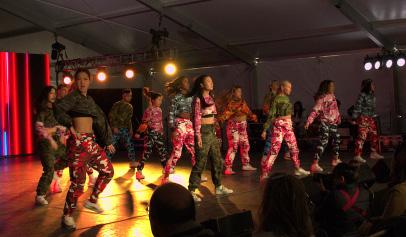
Fuego del Corazón finished off the showcase with a high-energy segment of lifts and spins in the beginning of its set.
Read the rest of this story at www.bcheights.com
After traveling across the world— from Poland to Kenya to Hawaii—to produce documentaries with the theme of social justice, Boston College filmmakers displayed their finished film projects at the 24th Annual BC Arts Festival.
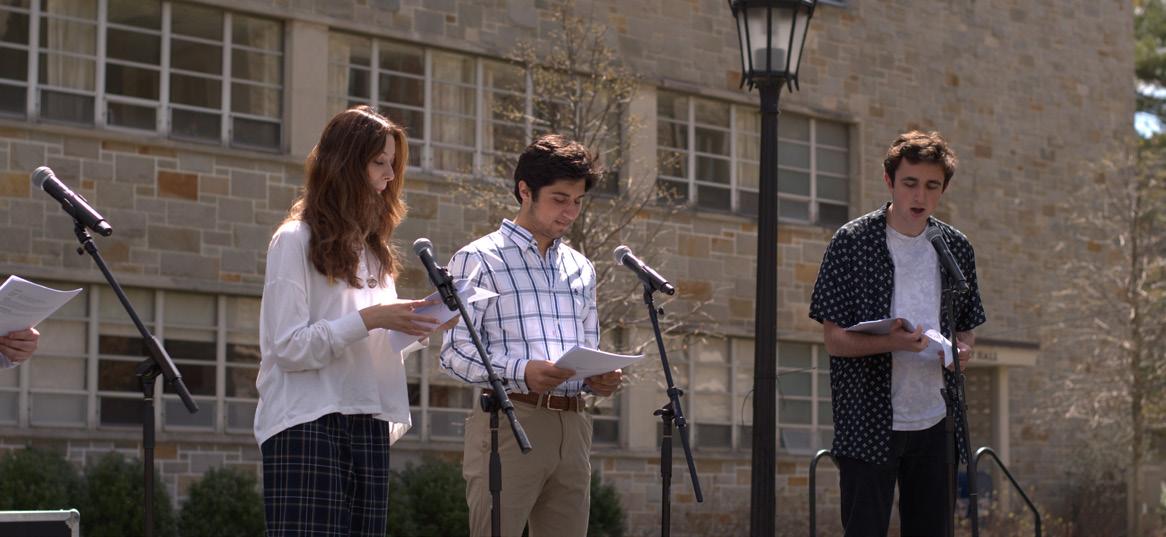
The students created the documentaries in partnership with BC’s Jacques Salmanowitz Program for Moral Courage in Film, which gives monetary grants to BC filmmakers that seek to investigate global injustices and pursue social justice.
Salmanowitz, the program’s namesake, was a Swiss businessman who helped Swiss citizens escape from behind German lines in World War II. The
program began in 2001 and assists filmmakers with advising and distribution of their films, all while seeking to replicate the courage of the program’s namesake.
“The Jacques Salmanowitz Program for Moral Courage in Film is devoted to encouraging the production of film concerned with acts of moral courage, providing role models for youth worldwide,” the program’s website reads.




The documentary presentation began with an introduction by John J. Michalczyk, the Salmanowitz Program director and chair of the fine arts department at BC. He emphasized the gravity of the films’ subject matter.
“I think our students have done extremely well in … capturing social justice,” Michalczyk said. “Students receive
anywhere from $2,000 to $3,000 and travel [to] some great places.”
The first documentary, Water Security on Native American Reservations by Rourke Morrison, MCAS ’22, and Tyler Gollin, MCAS ’23, observed various Native American reservations in the American Southwest and highlighted the ongoing drought in the region.
According to the documentary, one in 10 Native Americans in the United States lacks access to clean drinking water. But the documentary points out that there is an abundance of sugary soft drinks and morbid obesity is prevalent in
Read the rest of this story at www.bcheights.com
If walls could speak, the room of McElroy 237 would tell a vibrant story of paint, mouth-watering food, and cheery faces following a Thursday night event. ASiAM, a new literary magazine that uplifts Asian and Asian American students’ work, hosted its first event during the 24th Annual Boston College Arts Festival.
Celebrating the return of the magazine after two years of inactivity, co-leaders Serena Meyers, MCAS ’23, and Vivian Chuang, LSEHD ’23, hosted a block printing event, which included creating a personalized stamp and pressing it onto a piece of material. It was open to all who dared to put their artistic skills to the test.
Attendees stood around tables scattered throughout the space and had the option to stamp a tote bag, a journal, or both. The students bonded over the shared trials and errors of learning how to block print as they personalized their unique creations.
The attendees sketched drawings ranging from dainty flowers to eye-catching hearts onto eraser-like blocks. Then they precisely carved
the malleable blocks into stamps and lathered them with paint. The completed products were finally revealed after the attendees thoughtfully pressed their designs onto the bags or journals.
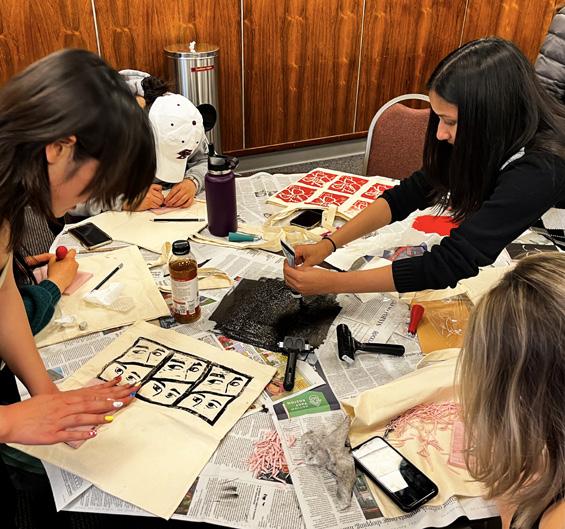
While the air was filled with relaxing lo-fi music, the participants enjoyed the charming imperfections of their pieces. Many said that faded paint and crooked lines added to the charm of their totes, inspiring what many participants called a “vintage twist.”
Following the hands-on activity, Meyers gave a short presentation introducing ASiAM’s renewed mission and encouraged all participants to get involved.
Chuang explained that she and Meyers revived ASiAM with hopes to expand the artistic opportunities for the Asian American community on campus. Before Chuang and Meyers’ leadership, ASiAM was strictly a literary magazine, and now it is expanding to feature more student art, including drawings and paintings.
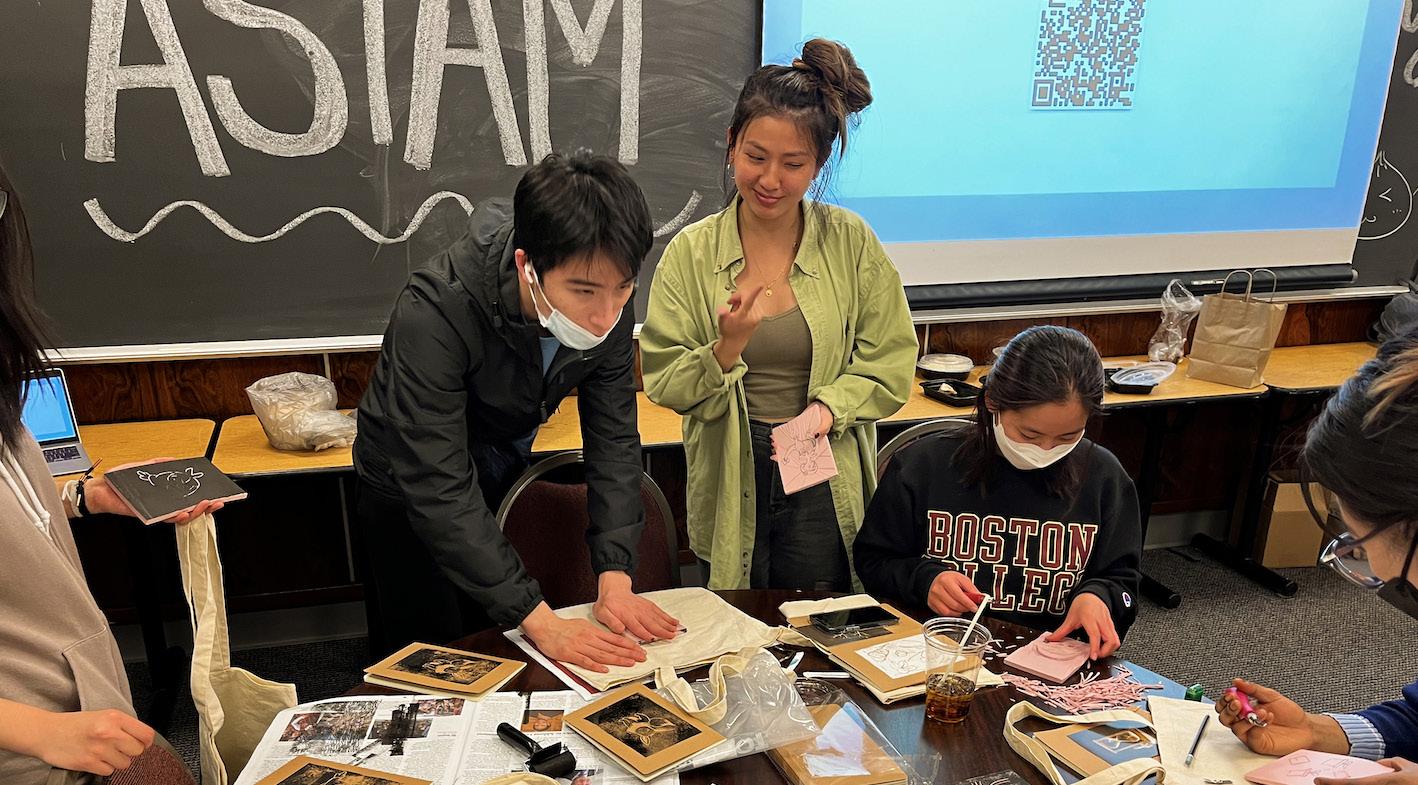
Chuang said that she and Meyers also wanted the publication to expand the topics explored in the publication. The literary magazine no longer requires that submitted work address identity.
“In the past, ASiAM required that the literary pieces be Asian American identity–focused, but we thought that could be too narrow since not everyone wants to express solely their Asian American identity through their artwork,” Chuang said. “So we wanted to uplift artists beyond their identity and
Read the rest of this story at www.bcheights.com
Trading in stage lights for sunlight and elaborate backdrops for Carney Hall, Boston College Contemporary Theatre and the BC Dramatics Society put on theatrical productions on Stokes Lawn to display their talents during the 24th Annual Arts Festival.
BC Contemporary Theatre kicked off the event on Saturday by introducing its new members, who performed readings of two 15-minute, self-written plays in an event titled New Plays, New Ducklings Before each reading, the writer set the
scene, giving descriptions of the characters and the setting. This allowed audience members to form a picture in their minds of the scripts the actors brought to life for them. The actors wore their regular clothes for the performance, giving the show a more intimate and laid-back feel.
The first play from New Plays, New Ducklings was “Ink” by Olivia Emerick, MCAS ’25. Arianne Horan, MCAS ’25, performed the reading for her character Anna, who wanted to cover up the star tattoo she recently got at a tattoo parlor. Nell Lorimer, MCAS ’25, played June, the tattoo artist.
Emerick’s play addressed themes of
regret and loss, as Anna feels that the star tattoo she got in honor of her sister did not properly serve as a symbol of her sister’s life. While June helps Anna determine how to best grieve the loss of her sister, she reveals her own family problems that stem from her parent’s favoritism of her brother, putting a strain on their relationships.
After the final, emotional scenes of “Ink,” Daniel Strickland, MCAS ’25, premiered his comedy titled “Clerical Error.” The play starred Zachary Kariotis, MCAS ’25, as Father Eli and Emerick as Jessica, a girl possessed by a medieval peasant. Alexis Elcan, BC ’25, starred as Jessica’s mom, Jennifer.
When setting the scene, Strickland specified that in Jessica’s room, the words “Lord Farley Hath Laid With Swine,” were
Read the rest of this story at www.bcheights.com
A crowd of adults and children sat anxiously awaiting Boston College’s Art Fest A Cappella Showcase to start in O’Neill Plaza’s tent. After two years of online performances and events, seven of BC’s a cappella groups stepped onto the stage to showcase their epic arrangements and powerful vocals.
A cappella producers and singers Dan Campagna, Rebecca Vinci-Campagna, and Kevin Cincotta-Guest served as judges to determine which a cappella group put on the best performance.
The A Cappella Showcase competition highlighted the individual talents of each BC group. At the end, the emcees awarded the crowd favorite prize to the Bostonians, while The Common Tones and The Acoustics won best arrangement and critics’ choice, respectively.
The event’s two student emcees stepped out to provide some comic relief as they presented each group that took the stage. One by one, each group stepped up to the stage with its logo shining in the background.
The a cappella groups displayed each of their unique styles in every song selection and outfit choice. Regardless of whether the performers opted to wear all black or full suits or something else entirely, the
main attraction was each group’s ability to engage the audience solely with their voices.
The first to perform was Black Experience in America Through Song (B.E.A.T.S), BC’s only R&B and soul a cappella group. The group started off the showcase with an emotional performance of “Lift Every Voice and Sing,” followed by a smooth arrangement of “When I See You” by Fantasia.
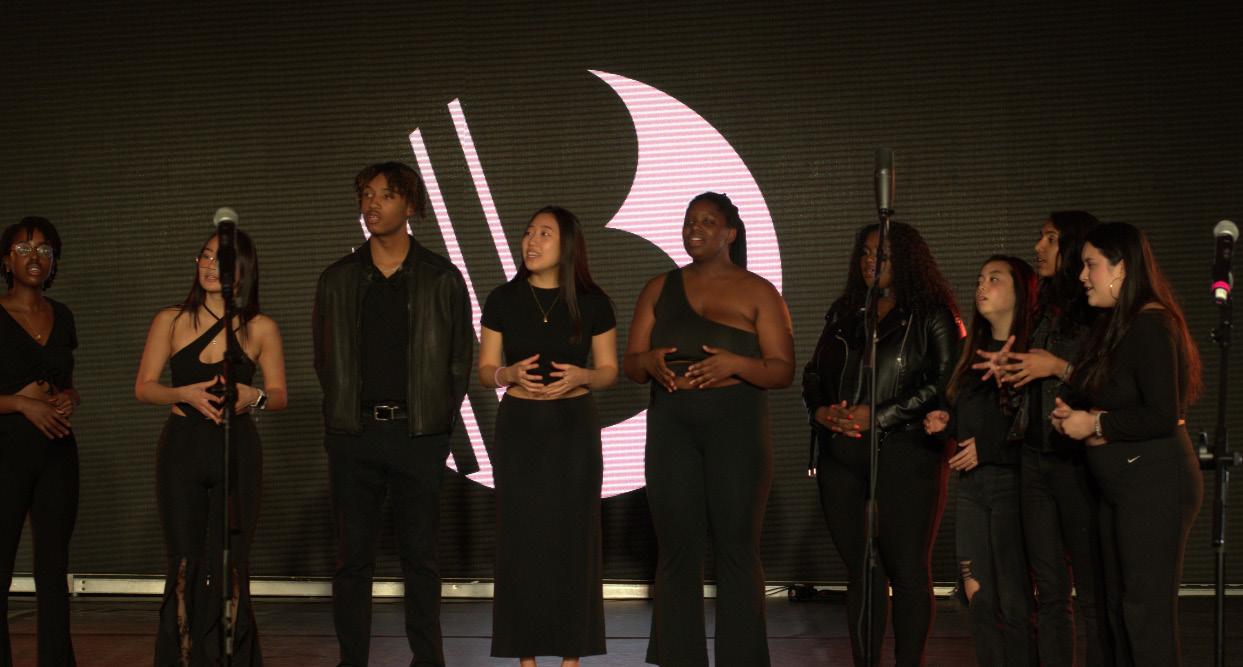
Following B.E.A.T.S were The Sharps in their 32nd year as an all-female a cappella ensemble, according to the emcees. The Sharps’ set consisted of arrangements of songs including “Green Eyes” by Joseph and “Don’t Stop Me Now” by Queen.
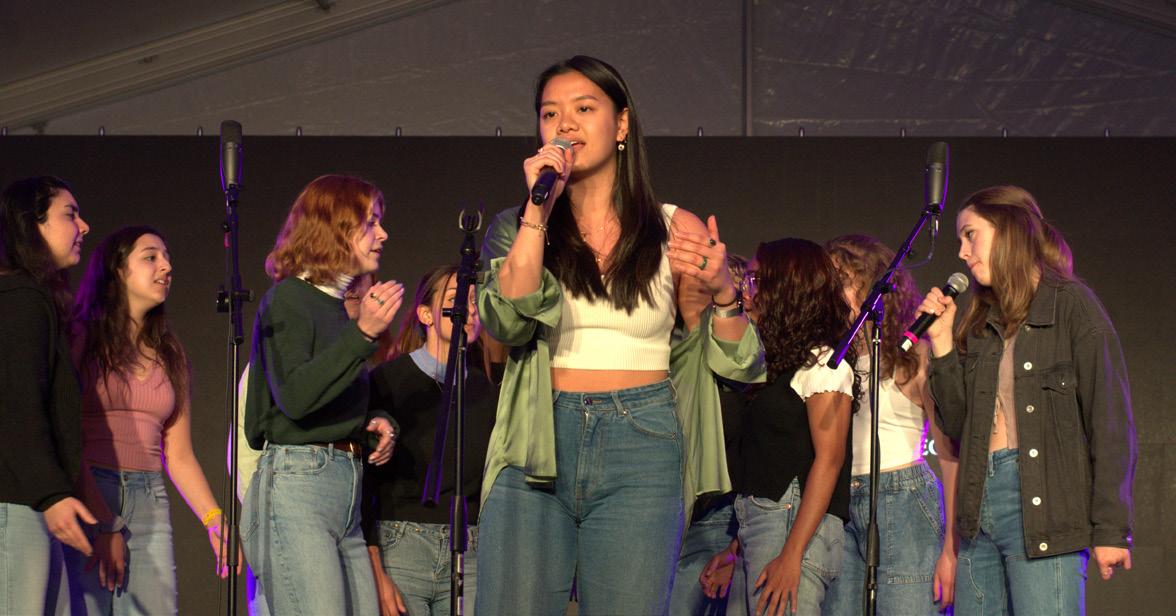
Against the Current, BC’s Christian a capella group established in 1999, was next up on stage. Its set focused on the powerful message of perseverance and adoration with songs such as “If I Ain’t Got You” by Alicia Keys and “Head Above Water” by Avril Lavigne. A sense of calm enveloped the room as the group’s soft melodies reverberated against the tent’s walls.
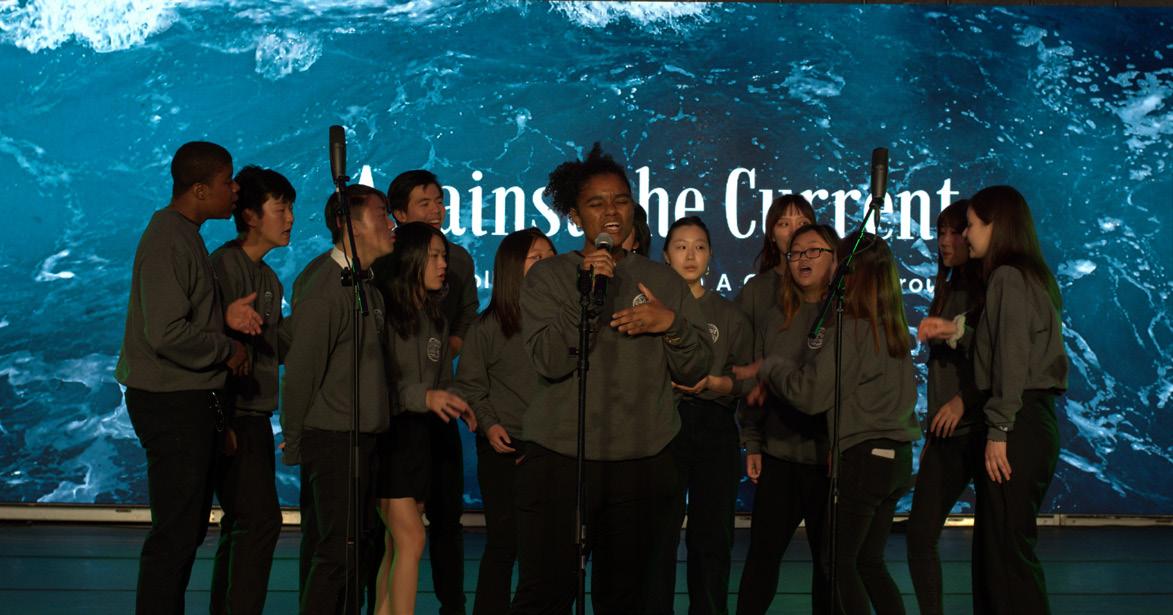
One of BC’s co-ed groups, The Acoustics, then came in with their signature diverse repertoire. They stunned the audience with
During the second day of Boston College’s 24th Annual Arts Festival, a group of poets settled themselves at a large table on Stokes Lawn. The words “Free Poems” appeared on a poster, and, as faculty and students walked past, the poets asked each passerby if they would like a free poem.
The poets running the “Poetry On Demand” event on Friday consisted of students from the Experiments in Narrative course taught by Allison Adair, an associate professor in the English department. The booth encouraged the students to use their creative writing skills to craft a personal poem upon request.
To receive the free poem, visitors gave the poets an idea or theme. To make the brainstorming easier, a printed list on the table encouraged
visitors to “think of something that fascinates, interests, or confounds” them, or to share a story they love, one that haunts them, or one they wish were true.
The poets could ask follow-up questions to better understand the requests and develop the unique verses. Soon after they fed the poet information for inspiration, the poems were ready, corroborating the group’s promise of “on-demand” service. The poets sent the on-the-spot poems to the visitors’ email addresses after five to 10 minutes.
Adair sat in front of a typewriter, writing and giving out physical copies of the poems, while her students emailed their work to those who requested a poem.
Between classes on campus, students engaged in the other arts activities surrounding the table of poets. Occasionally, someone approached
the table of poets with a personal request. The ideas that passersby gave to the Experiments in Narrative students were eccentric and creative in nature.
An international student gave Adair the challenge to write about moving across countries and leaving everything behind, she said. She wanted to capture the student’s gloom while also displaying the student’s hope for the future.
Another student walked up with a unique idea and offered the poets the word “violin.”
“I used to play the violin when I was younger, and now that I don’t, I long for the sensation that playing the violin used to give me,” he said.
Read the rest of this story at www.bcheights.com
Students trickled into the offices of WZBC, Boston College’s student-run radio station, for the second day of BC’s 24th Annual Arts Festival. The dimly lit studio adorned with posters and music memorabilia deep inside McElroy Commons is hailed as a haven for musicians and music lovers.
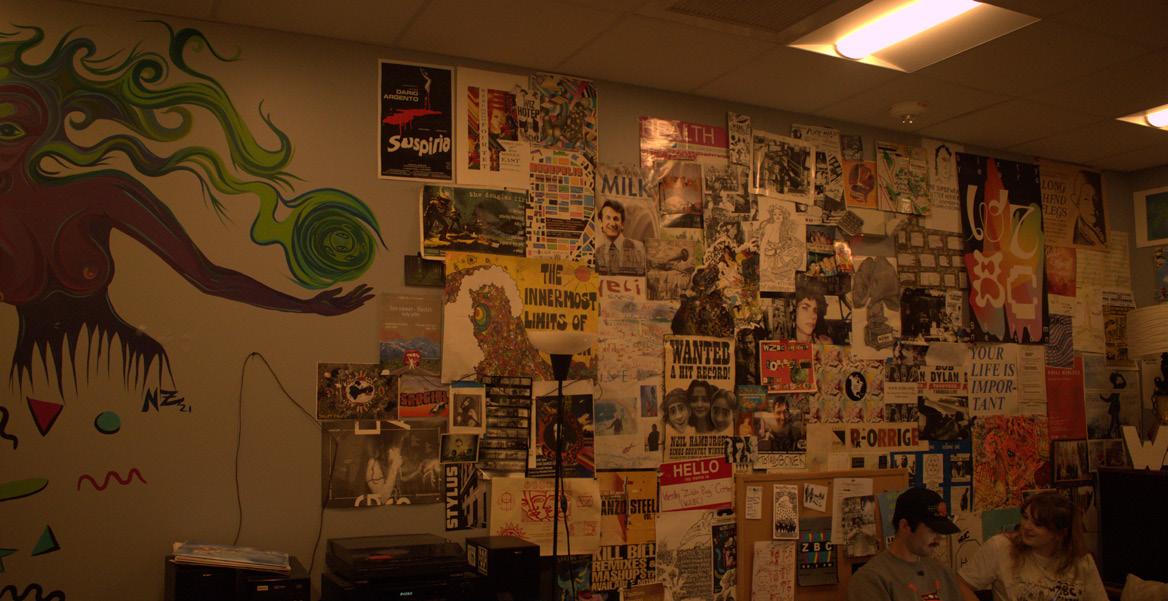
Throughout Friday afternoon, WZBC opened its offices to the public for the first time for an inside look into its daily operations. From 10 a.m. to 3 p.m. on Friday, students filed into a colorful and laid-back environment. People chatted with DJs and sifted through the record collection of oldies and underground tracks.
Visitors curiously made their way through the offices, looking at all the decorations and inside jokes that WZBC had formulated over the years. A large wall of CDs embellishes the otherwise unnoticeable rooms on McElroy’s first floor. Lily Telegdy, general manager of WZBC and LSEHD ’23, welcomed people into the space, sharing WZBC’s mission and her passion for music.
“I was searching for a place where I could listen to great music and hang out with people that are a bit different … people that really love the arts,” Telegdy said. “And I think this is a home for them.”
The station’s Arts Festival event consisted of open access to its offices for all BC students. The board members also gave out old, classic records. Through the event, WZBC, found at 90.3 FM, aimed to boost the student population’s awareness of the station and solidify its place in the arts culture of BC, according to Telegdy.
“I think what we contribute is an outlet for people who love music,” Telegdy said. “We have a collection of thousands of records and CDs—that music is literally historical.”

The open studio also provided BC
students with a chance to meet with WZBC DJs and board members. The room was filled with hushed conversations about the interesting records available and vibrant aesthetic that flows through the studios.
The conversations inside the WZBC studios granted insight into the consistent effort that the radio station puts into promoting small artists.
WZBC began with AM streaming in the late ’60s and FM streaming in the early ’70s. It started out as a small group of students and community members streaming on the local radio station. Currently, the organization has over 45 students who intern with the DJs on their shows, and the number of students getting involved
is growing at a rapid rate. Three years ago, WZBC only had about 10 interns, according to Telegdy.



The radio station specializes in playing music from underground artists in genres ranging from rap to country music. Telegdy said that the station has a rule that DJs cannot play artists that have over a million plays on three or more songs. The genre of music varies, as each DJ can choose the music he or she plays during a designated time slot.
“We love local, hyper subgenres—anything weird, anything that you would never hear on tradi-
Read the rest of this story at www.bcheights.com
the series, and that’s frankly embarrassing. His outfits? Also embarrassing. You are probably a drama queen, and you need to calm down a bit. Let’s slow down and think through our actions, okay? Okay.
Many of us have had the amazing, unique, and yet unfortunate experience of watching Glee. Lots of words could be used to describe the show, but honestly, I must say that it slayed—it’s the first and best and only word I am going to use to describe the show. There are so many characters who have so many arcs. Who you are and your immediate future is directly related to your favorite character.
Rachel Berry: Stop. False. No way she’s your favorite. Please. I can’t. I have nothing to say. Rethink your life, please. You are not the star. This is the real world where people don’t mess up their best song twice but still get accepted to a school where Kate Hudson will bully you. Just stop. I don’t even want you reading this article. Bye.
Mercedes Jones: She is perfect. She is everything. You are a diva but you need to be, so keep on demanding everything of everyone. You deserve it. Don’t let yourself be outshone. Speak up! I know you like her because you feel like you need to speak up. I see success and happiness in your future if you fight for it! Slay queen!
Finn Hudson: Uhh. Finn is boring as heck. Why? He does nothing at all really. Like, he sings decently, and every time I see him dance I want to rip my eyes out, but he’s pretty harmless. The episode where he died was beautiful and sad and very well done, but yeah. I don’t even have advice. I’m just bored. He doesn’t even get MILFs like Puck. Just yeah, move on babes.
Kurt Hummel: Mmm okay yeah maybe. I can see it if you were gay and he’s your first ounce of representation, but otherwise? I don’t know. He goes hand-in-hand with Rachel at the end of
Quinn Fabray: Um, I don’t even know what to say. Like why? I mean we all love when she has fun with Santana at Will’s wedding, but that’s pretty much it. So I gotta say, be nicer to people around you because they might turn out to be as fake as you, and turn on you. Try keeping your moods in check, because most of the time your first impulse will be terrible. I see much betrayal in your future.
Santana Lopez: QUEEN. LOVE. STAN. ICON. Santana is amazing, life-changing, and iconic. And of course, if she is your favorite, you must be iconic. Or a raging jerk, but we’ll ignore that for now. You tend to keep your feelings bottled up, and that’s not healthy! Find yourself a journal or a trusted confidant, maybe a Brittany stan, and let that stuff go. I promise you’ll feel so good after. But keep slaying queen. I love you, and you keep us all entertained.
Blaine Anderson: Blaine? Seriously? Honestly, he annoys me, and so by default you annoy me. You’re nice and stuff, and it’s fine, but honestly it feels a little fake. Try reflecting on your motivations and how you impact others, because I am sick of the Blaine show, okay? Also, Blaine dated Karofsky, so I gotta warn you about relationships in the future. Please heed your friends’ warnings. I promise you they have your best interest in mind.
Sue Sylvester: SUEEEEEEEE. And that’s how Sue C’s it! Icon. Legend. But unfortunately, bully. Like, queen, I love you, but you gotta calm down. Let’s pause, and reflect on our actions and how they affect others. Maybe pick up a new hobby or do service or something. Maybe Best Buddies?! Like, that’s awesome. I believe your heart isn’t entirely evil, so save yourself queen, or there is a lonely future in front of you.
Mike Chang: He’s hot, he can dance, and he’s amazing. I am a little concerned that he’s your
favorite, though, because he’s probably just your favorite because he’s no one’s favorite. So it’s giving pick-me vibes. Watch yourself.
Tina Cohen-Chang: Like yes emo queen, but also she faked a stutter for a whole season so people wouldn’t call on her or make her present in class. I’ll let you decide. You’re a bit of a red flag, but people like you anyway. Keep being emo because that’s what makes you epic.
Brittany S. Pierce: Your favorite is BRITTANY?! Amazing, icon, love, stan. She is awesome in all the best sassy ways. You are so cool and you don’t even know it, which, according to One Direction, makes you even cooler. My advice: buy a cat. It will be your partner in crime, and you will do great things together. I see wonderful things in your future. You are destined for greatness and not the small vision of greatness that your parents probably have. Your path is unpaved, so it’s time to pave it with rainbow stones.
Sam Evans: Okay slay fish lips. Sam is nice, pretty unproblematic, besides the Mercedes incident, even if that musical number slapped. So if Sam is your favorite then you’re probably kinda plain, but definitely not in a bad way. You’re nice, you look out for people, and it’s easy to make and be friends with you. In short, you pretty much slay. In your future expect little change unless you decide to make a big change. Keep on slaying out there babes.
Will Schuester: There is a reason that Mr. Shue is at the bottom of the list. His list of offenses is almost admirable: he framed a student and blackmailed him to join the Glee Club, he twerked, he RAPPED (I cannot even). If Will is your favorite character I probably don’t like you. Like babes, why are we endorsing creepy teacher behavior??? Stop nawr. So, therefore as decreed by the Gods (me), something bad will happen in your immediate future. Possibly even right after you finish this article. So watch out, dude, it’s coming for you.
Evy Knouse is an op-ed columnist for The Heights. She can be reached at evelyn.knouse@bc.edu.
Nothing is more wholesome or community-based than referring to a group of people by the number of the room that they currently live in. From 406 to 302 to 113, the nicknames are endless—but also very useful. It’s so much easier to say that you saw 506 at the dining hall than to rattle off a list of everyone in the eight-man every single time you want to mention a group of people who also happen to live together. No matter where you live next year, you’ll always be Gonzaga 231, Walsh 408, or Mod 27A at heart.

Soon, the playlists that you made in December to try and recreate the feeling of being on Summer Break while in the depth of the Massachusetts winter will be able to serve their true purpose: being the soundtrack to your summer. Nothing sounds better than a perfectly curated summer playlist playing as you lay out on the dock, by the beach, or at the pool while reading a book. Charge up those waterproof speakers, Eagles—you’ll be using them sooner than you think.

It’s hard to encapsulate the emotions, thoughts, and feelings that occur during your first year of college. I’m not eager to answer the question “How was college?’’ because at that moment I know my mind will be completely blank. So, I’ve actually started to think about it more often, choosing which highs and lows to share with everyone back home who is soooo interested in hearing about it. I was on the T heading back to Boston College, and it got noisy enough for me to want to plug my Airpods in and cancel out the noise. So I did. J. Cole’s “Before I’m Gone” blasted through my ears. A theme that comes up a lot in rap songs is how unfair our institutions are to minorities and how these institutions limit our decisions. The lyrics that perfectly capture this in J. Cole’s song are: “One day you tryna make rent, next day you in jail / Lord knows he meant well”
What led me to my polite “f—k you” to all of the institutions in our society that have let us down at one point or another was this reminder of home. Home as in my neighborhood where the
sunset was an unspoken curfew. Home where it wasn’t out of the ordinary to see people sleeping outside convenience stores. Home where my peers and I had to work or take care of siblings to make our parents’ lives easier. Home where students gave up on their education because the thought of college was so out of reach. Home where our mental health wasn’t addressed. Where no one talked to us about college applications. Where our parents didn’t understand “the systems” working against us, so they ingrained in us the idea that if you work hard enough, if you are smart enough, and you are determined enough, you’ll make it— and if you don’t, it’s your individual fault. Honestly, it’s infuriating to think about how many odds are stacked against us.
There is no shortage of disappointment in any institution, whether it be educational systems, health care systems, city governments, etc. Contrary to where you think this might be going, I’m not about to go on a long tangent about all the ways minorities have been failed by the institutions of our government and society. I’m not going to go into detail about how we continue to be disappointed by BC’s shortage of counselors at University Counseling Services or the way AHANA being dropped from the Thea Bowman AHANA and Intercultural Center is more than just about a name.
How was college?
It was exhausting.
Looking back at the year, depending on my mood, I could be on the verge of tears. Maybe some of you identify with being low-income, first-generation, or Hispanic like I do. Often we’re too hard on ourselves, thinking “We should’ve applied for this,” “We could’ve done better” or “If I hadn’t … I would’ve.” Criticism only goes so far— there’s a need to appreciate our accomplishments.
Making it through the first year is our biggest “f—k you.”
F—k the institutions, because regardless of how hard the system’s made it for you, you:
Got through work-study picking up 9 a.m. shifts, weekend shifts, or shifts after class.
Joined clubs that piqued your interest.
Dropped classes to prioritize yourself and your interests aside from the pride you’ve been taught to carry about having to finish what you started.
Passed your classes (even if it meant passing that C.S. course you took to cover your math core with a C).
Raised your hand in class even when you thought you were the least capable person in the room.
Made friends and had conversations even when your bed seemed like the most comfortable place.
F—k the institutions. We’ll be back next year.
Alexa Piedra is an op-ed columnist for The Heights. She can be reached at alexa.piedra@bc.edu.
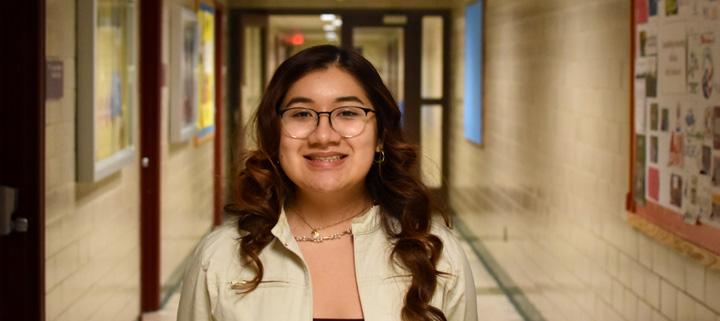
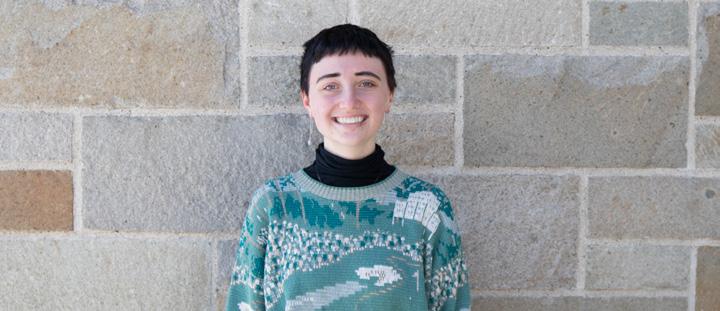
Running late to class? Think you have a few moments to grab a latte from the Chocolate Bar? The Gasson bell will tell you that you’re wrong. It will ring, sending you into a panic, scrambling to shove your pencils and erasers back into your too-small pencil case in the middle of the Rat so that you can make it to your next class in time. But, it’s more likely that you are correct about what time it is over the Gasson bell. Every day, without fail, the bell rings at least two minutes before it should, throwing off the balance of the space-time continuum and wreaking havoc on the routine of everyone’s days.
This might be a little bit more meta for some of the usual readers, but it seems fair that the last Thumbs Up, Thumbs Down merits its own Thumbs Down. Not because Thumbs Up, Thumbs Down is intrinsically bad, but just because it’s a melancholy end to the year. Recapping the good and bad of the week just won’t be the same when all Eagles are scattered to the wind, and the goods and bads of everyone’s weeks are no longer a collective celebration or commiseration. But come fall, we’ll have a full list of new commendations and grievances, so never fear. We’ll be back next year.
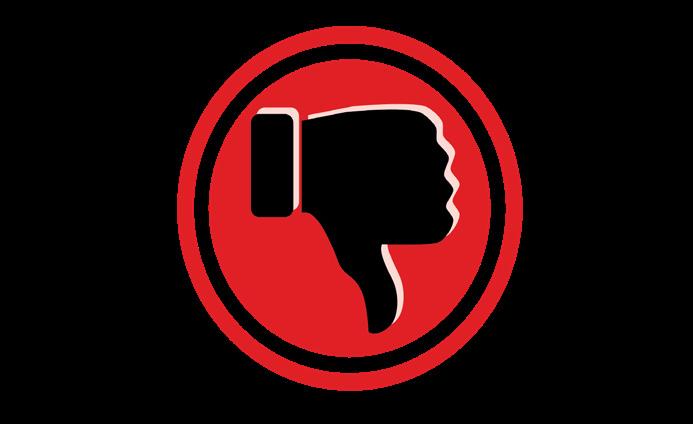




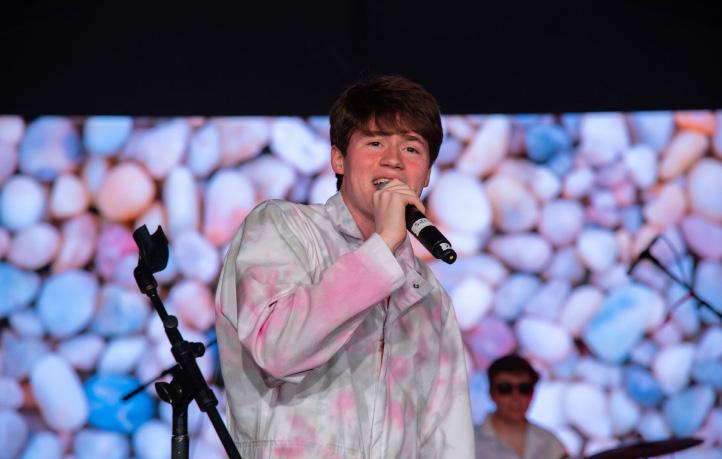
Boston College should implement more affordable Senior Week events to make the programs more accessible to students. In the wake of the COVID-19 pandemic, which hindered social connection between members of the Class of 2022, Senior Week events are an effective way to foster a sense of unity among students. The senior class deserves to celebrate its four years at BC without concerns about ticket pricing.
The current prices for Senior Week events can act as a deterrent to some seniors interested in participating. Ticketed Senior Week events include a Red Sox game for $21, the Dance Through the Decades for $50, the 100 Days Dance for $40, the Commencement Ball for $100, a golf outing for $80, and a Trivia Night at the Circle Tavern for $12. All total ticket costs each include an additional Robsham Box Office $2.50 convenience fee. If a senior wanted to attend every event, it would cost $318 for tickets, including the convenience fee, alone.

On top of ticketing, there are other costs that might hinder a student’s ability to participate in Senior Week. For formal events, appropriate attire is often expected. Dresses can cost $50 or more, and the average cost to rent a tuxedo starts around $150. Transportation is typically not included for Senior Week events, leaving students to choose between long T wait times or paying for expensive Ubers, yet another expense for the graduating seniors.

The event ticket prices also fail to take into account that graduating seniors are gearing up to pay a variety of post-graduate expenses, such as rent, graduate school tuition, and student loans. Students should be able to enjoy Senior Week events without stressing about high prices that might bar them from bonding with their class.
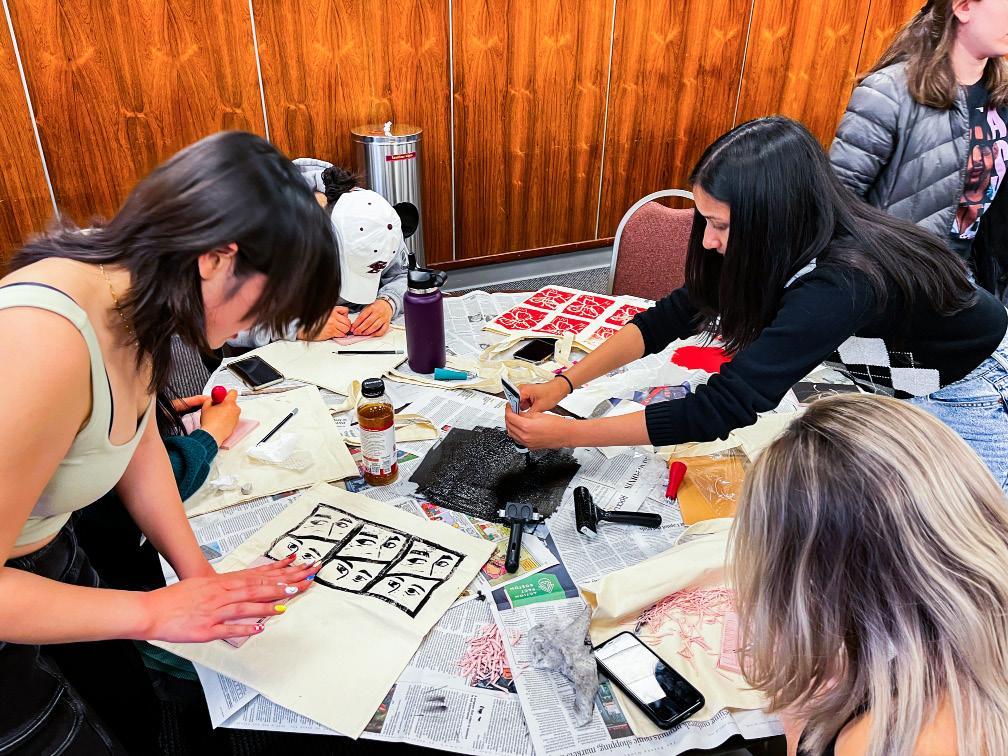
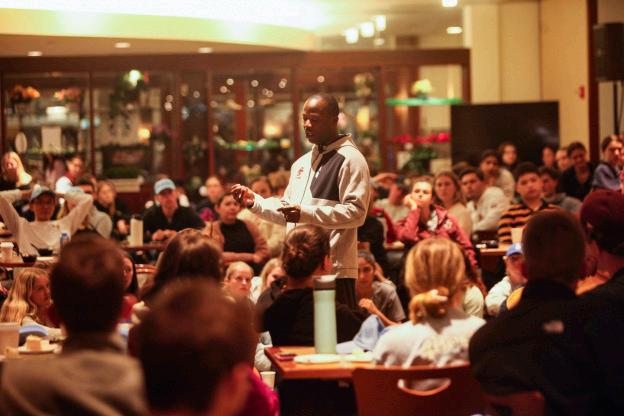
Senior Week is organized by the Office of
Student Involvement (OSI), along with student organizers, but the office does not receive a formal budget or funding from the University for the week’s events, according to Matt Razek, OSI’s associate director of student programming. On-campus organizations may sponsor certain events to make them free, but this is not the case for every event. For example, the Boston College Police Department hosts a barbeque in the Mods which is open to all seniors for no cost. Non-sponsored events, however, such as the 100 Days Dance or Commencement Ball, are funded exclusively through student ticketing.
OSI relays the total number of tickets available for a select event to the Robsham Box Office, including general tickets, comped tickets, and Montserrat tickets. The Montserrat office will then share events with students who can fill out a form, entering them into a ticket lottery for each individual event if they are interested. Due to the limited number of Montserrat tickets offered for each event, there is no guarantee that all Montserrat students will be able to attend all of the events they want to. Although the Montserrat lottery system is the same for Senior Week events as general events throughout the school year, the limited number of overall tickets for Senior Week activities may further hinder Montserrat students’ ability to attend.
Seniors have also complained that the process of purchasing tickets for Senior Week events is highly competitive, largely due to capacity constraints. OSI, however, often determines how many tickets it offers based on previous demand. For example, Razek explained that in 2019, OSI offered 500 tickets for a Red Sox game and sold 450. This year, they offered 600 tickets for the same event, expecting a similar amount of demand, but sold out instead. OSI then had to work with Fenway Park to offer an additional 125 tickets, capping the events
at 725 seats. Even with the additional seats, some students were still unable to purchase tickets.
For Dance Through the Decades, however, there was a delay in demand for tickets. The Royale Boston hosted the dance, which had a capacity limit of 2,300— enough space for a senior class of 2,200. After three weeks of ticket sales, OSI gauged limited interest, ultimately deciding to reduce the capacity limit to 1,500 students. The event eventually sold out the day of the dance and some seniors were unable to purchase tickets.
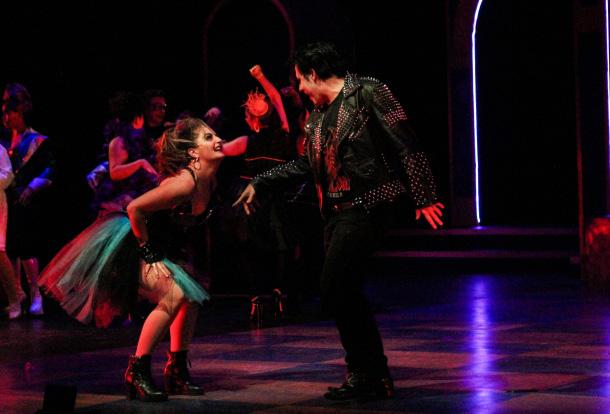
This delayed demand can partially be attributed to the high prices of the tickets which do not include transportation costs or complimentary drinks. High prices can make students reluctant to purchase tickets until the last minute, which falsely indicates to organizers that there is less interest in some events. This delayed interest can therefore prevent organizers from properly meeting student demand.
Senior Week activities should consider less expensive venues and offer a greater number of cheaper tickets upfront. This would ensure that students who want to participate in Senior Week activities are able to afford tickets for multiple events and are not concerned about a last-minute rush of sold-out tickets. The most important part of Senior Week programming is not the expensive venues, but celebrating the camaraderie of the senior class. The organizers’ decisions should reflect this by selecting more moderately priced venues.
Senior Week offers graduating seniors the opportunity to celebrate their time at BC and embrace the BC community. Ticket sales and fundraising are necessary logistical components of these events, but they should not be deterrents to student participation. Ensuring that all seniors, regardless of financial capability, are included in Senior Week events should be the primary goal of organizers.
York, from A1
“He came my junior year,” said David Hymovitz, BC ’96, who played during York’s first two seasons as head coach. “The program was trying to figure everything out. … It’s one of the most storied college hockey programs, and … two coaches left in a matter of a couple months. And then comes Jerry in July, and from day one, you could tell [there] was … gonna be stability.”
Upon York’s arrival, there was an immediate shift, Hymovitz said. York was determined to bring success back to his alma mater and quickly shifted the locker room culture to become more positive.
“He was coming back home to coach there, and you can tell he wanted to obviously be there a long time—he wanted to turn the program around,” Hymovitz said. “The culture that he brought from day one … I think we still see it today.”
It didn’t take long for York to find success. In his first year at the helm, BC won the Beanpot, and in his fourth year in 1998, the Eagles won the Hockey East regular season title and finished as the runner-up in the NCAA Tournament. They returned to the Frozen Four the next year. In 2001, in York’s seventh year as BC’s head coach, the Eagles won the NCAA Championship.
“When he came, I don’t want to say we were in shambles, but the program was on a downswing,” Hymovitz said. “His fourth year there, they lost in the National Champion-
ship in overtime. So it was just such a quick turnaround. He came and he said ‘Hey, what’s going on with this program? What are the issues?’ And fixed it just like that.”
York’s achievements didn’t stop there.
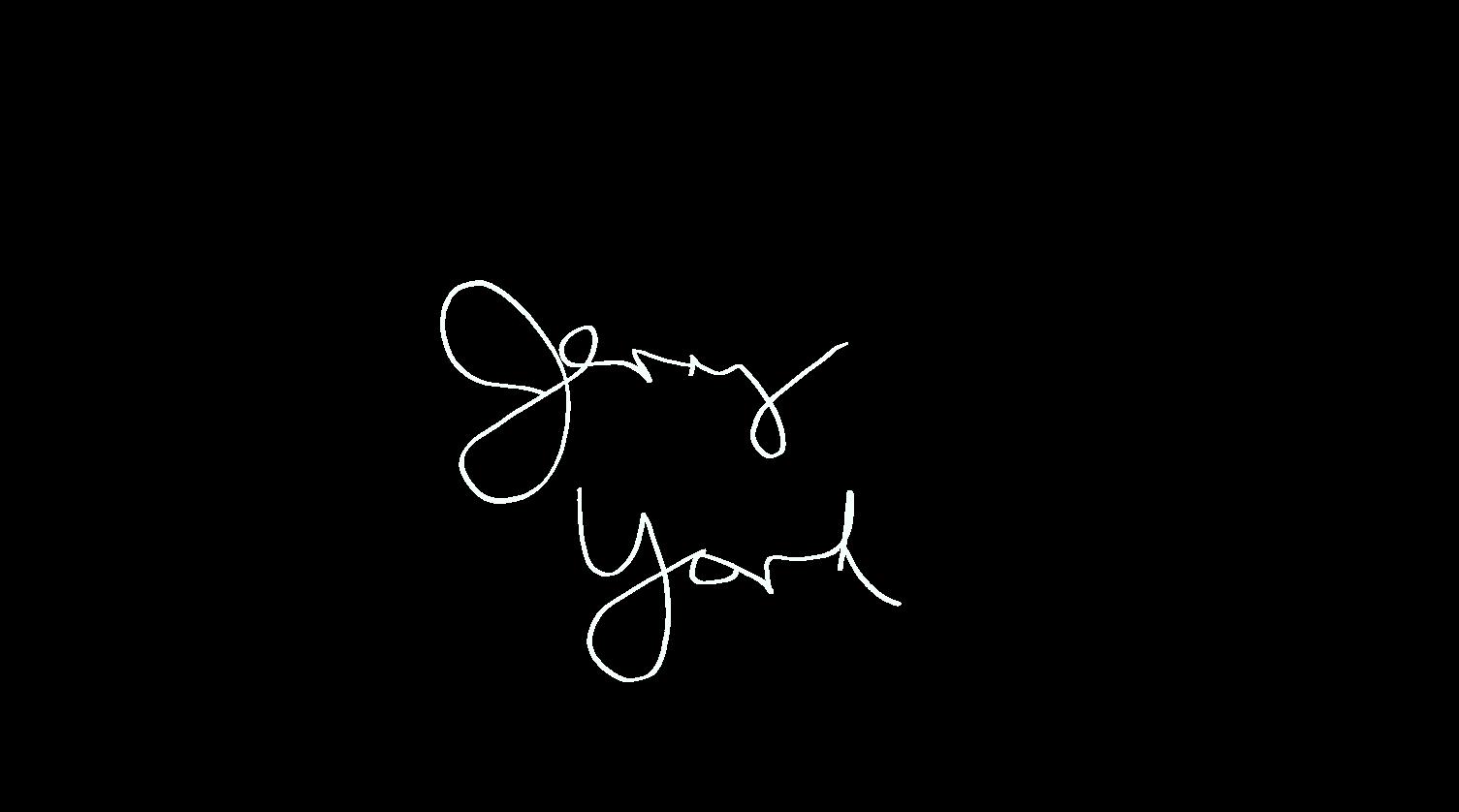
“[His success] wasn’t just a onehit wonder,” Hymovitz said. “It stayed there for another 24 years.”
Y ork went on to win three more national championships at BC, all within five years—2008, 2010, and 2012.
Cross, BC ’12, who captained the 2012 National Championship team, said that winning the trophy under York made it all the more special.
“Every season, I remember Coach York would essentially start over back to the basics, and you begin this process of building all year long,” Cross said. “He really had an approach that made it feel like we were always climbing—we’re always building toward something, and obviously that something was a National Championship in April.”
While Cross said that York prioritized the process, playing in national championship games was always in the back of the coach’s mind.
“There’s some great pictures of Coach York holding up the trophy,” Cross said. “It shows how happy we all were in the moment, but it also shows Coach York and how happy he was. He was process driven for sure, but we knew that winning trophies was something that was kind of the ultimate goal each season.”

Matt Price, BC ’10, who cap -
tained BC’s 2010 NCAA Championship–winning team, said that holding up the trophy to cap off his senior year was something out of a storybook—something he struggles to put into words.
“You can’t draw it up any more perfect—to win your last game as a senior,” Price said. “It [was] truly just a team environment, and just to see the joy on [York’s] face and how much he loves coming to the rink everyday and loves the team and loves hockey. To be able to be a part of giving him that ultimate goal [was] pretty special.”
For both Cross and Price, bringing home a trophy to York was something that meant more than just stitching a new line onto the banners that hang over Kelley Rink. York, for his players, is someone who transcended the expectations of what a hockey coach is. Each trophy that came back to Conte Forum was a testament to the love and dedication he brought to BC, day in and day out.
A staple of the University, York embodies what it means to be a member of the BC community, according to many of his former players and colleagues. Following his retirement, the praise for his lasting impact on BC poured in in an overwhelming amount.
Hymovitz said he saw York’s character in the way he would reach out to see how his players were performing in school and check on
On April history, retired after behind embodies what it means to be a part of the BC community.
York, from A13
“He still stays in touch with all of us via text,” Cross said. “The fact that … I'm in my 10th pro season, and he'll send a text and say, ‘Hey, nice game last night.’ So the fact that he checked on the box score and cares enough to follow his former players.”
Price saw York’s impact even before he arrived on the Heights.
As was the case with Cross, York was an integral factor in Price’s college decision
“Part of the reason why I chose Boston College was just feeling comfortable that York truly cared about me as a person and my development,” Price said.
head coach of BC women’s hockey and York’s colleague for the past 17 years, said York’s character was evident from the moment she took the reins of BC’s women’s program in 2007.
“Just being at BC for so long, I feel like our relationship developed,” she said. “He just became more of a mentor and a friend as I got to know him more. It was really nice to have a friend like that. We coach in the same sport, and to have such a great relationship with Coach York was really helpful to me … especially when I first became a head coach.”
In 1999, The Heights named York its “Person of the Year.” The article described York as someone who “epitomizes what it is to bleed maroon and gold.”


“In winning with a grace befitting this institution, he sets an excellent example of what the spirit of BC is all about,” the article reads. “Jerry York serves as living proof that nice guys can finish first.”
I n capturing York’s legacy, there is almost too much material to work with. But as the lights fade and BC looks to find a new leader for the men’s hockey program, there’s a seemingly universal understanding: There just isn’t anyone quite like him.
Boston College.”
Price thinks about the way in which York exemplifies BC’s Jesuit ideals and how, first and foremost, he cares about the people around him.
“He talks about being a man and woman for others—I think he lives it,” Price said. “He takes it seriously. Everyone who came into our locker room or who touched our program, I think he wanted to be treated with respect.”
After York earned his 1,000th career win in 2016, BC Athletics released a recording of his postgame speech. In it, York never once mentioned the achievement. Instead, he congratulated his players, highlighted some of the game’s best plays, and spoke about the hard work of his coaching staff. He ended the speech with a simple sentiment, but one that exemplifies the care he has for his players.
“Congratulations, guys,” he said. “It’s an honor to coach you.”
Since playing on York’s inaugural BC team in 1994, Hymovitz has enjoyed seeing the ways in which York has grown throughout his career. He said he admires that York’s dedication to BC as an institution is as strong today as it was when he arrived on the Heights.
Replacing Jerry YorkNick Pulice
“I have been thinking about the possibility of retiring during the past several weeks and it just seemed to me to be the right time to do so,” he said.
win or great play.
Katie Crowley,
“He truly led the way for all of us coaches to try to be like he is,” Crowley said. “[He’s] such a great role model and spokesperson for
GRAPHICS BY ANNIE CORRIGAN / HEIGHTS EDITOR
By Emma HEaly Deputy Managing Editor
In 28 years as the head coach of his alma mater, Jerry York, who announced his retirement on April 13, led Boston College men’s hockey to four national championships, 11 Hockey East regular season titles, nine Hockey East Tournament titles, nine Beanpot titles, and 12 Frozen Four appearances. With nearly three decades of coaching at BC on his resume, York produced some of the most memorable moments in college hockey history. Here are York’s top 10 moments at BC.10. Battle of Comm. Ave, Feb. 5, 2021
Drew Helleson Beats Buzzer, BC
Beats BU 4–3 in Overtime
The historic Battle of Comm. Ave. has long been a staple of NCAA hockey, providing an electric, crosstown rivalry between two perennial national contenders for the last 104 years. Few Battle of Comm. Ave. matchups, however, rival the 2021 iteration in Conte Forum, which was devoid of fans at the time due to the COVID-19 pandemic. As the clock wound down in overtime, York orchestrated an elegant dance led by defender Drew Helleson, who wove up the ice with the puck at his stick and beat BU’s goaltender with under one second left on the clock.
9. Regional Final, March 30, 2008
BC Beats Miami (Ohio) 4–3 in Overtime To Earn Frozen Four Bid
Freshman Joe Whitney scored the game winner in overtime to send BC to its third straight Frozen Four. Nathan Gerbe registered the tying goal late in the second period before the teams went scoreless in the third, sending the game to overtime.
BC scored three times in a span of two minutes in the second period, and the Eagles outmatched Hobey Baker finalist Ryan Jones on offense.
“I knew that coming down to the end of the season, teams were going to try to bang me around a little bit,” Jones said. “The funny part is, I kind of feed off that stuff.”
8. Hockey East Tournament Final, March 21, 1998
York’s First Hockey East Tournament Title, BC Beats Maine 3–2
Just four years into his tenure at BC, York had flipped a program without an identity into a championship-level team, earning his first Hockey East Tournament title.
Brian Gionta, a freshman at the time, scored a late third-period, game-winning goal to give the Eagles their first Hockey East crown in eight years. BC came back from a 2–0 deficit in the win. A Heights
article following the game described the 1998 squad as “the hottest team in all of college hockey.”
7. Beanpot Final, Feb. 9, 2004
BC Beats BU 2–1 in Overtime to Earn a Beanpot Title
A heroic 50-save effort from Boston University goaltender Sean Fields wasn’t enough against a high-flying, No. 1 BC team. Ryan Murphy scored at 6:07 in the overtime period after Ty Hennes scored the tying goal with 3:30 left in regulation.
“Sean Fields almost stole the game,” York said afterward. “One of the key parts for our team was we handled the frustration of a hot goaltender, a one-nothing deficit, a goal called back, and still kept our poise.”
6. Beanpot Final, Feb. 14, 1994
BC Beats Harvard 2–1 in OT for York’s First Beanpot Title in His First Year
A Heights article at the time claimed that, heading into the 1994 Beanpot Final, No. 2 Harvard was “set to ‘kill’ BC.” After beating Northeastern 5–4 in double overtime in the Beanpot Semifinal the Monday prior, BC headed to overtime once again and emerged with its first Beanpot title in 11 years—and the first of York’s tenure.
Heights reporter Michael Civille
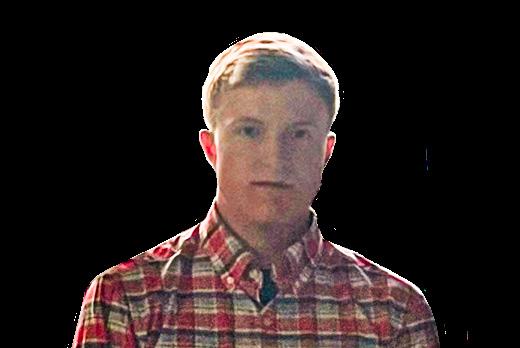
wrote that watching the game was like watching Rocky
5. York’s 1000th Win, Jan. 22, 2016
BC Wins 8–0 Over UMass
It took York until a little further into the season than expected, but with an 8–0 win over UMass, York became the only hockey coach in NCAA history to reach the 1,000win mark. The Eagles scored five goals in the first period and never looked back, cementing their coach’s place in the hockey history books.
“It’s not part of my fabric. It’s not part of my makeup,” York said after the game. “You leave your ego at the door. You’re a family.”
4. National Championship Game, April 10, 2010
BC Wins 5–0 Over Wisconsin for Third National Championship Under York
The Eagles blanked Wisconsin for their second national championship in three years. The juniors and seniors on the roster had been around for both of those titles, but BC entered the matchup with a relatively young team—averaging 20 years, six months—and only
Read the rest of this story at www.bcheights.com
With the news, BC finds itself with a vacancy at head coach for the first time in nearly three decades. Here are some potential candidates to replace York behind the bench.
Greg Brown
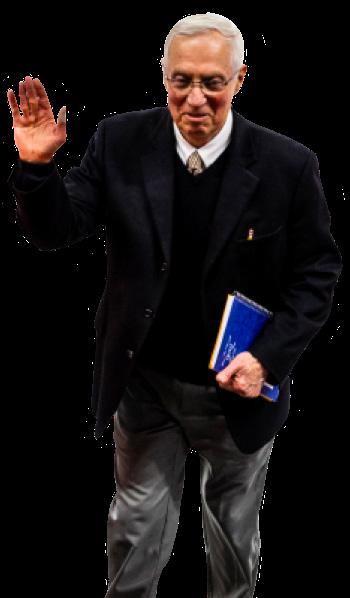
Nate Leaman
Greg Carvel
In her 10 years at BC, lacrosse head coach Acacia Walker-Weinstien has built a program from the ground up. After winning the National Championship in 2021, she has proven that she can bring sustainable success to BC and earned the Heights 2021–22 Coach of the Year honor.
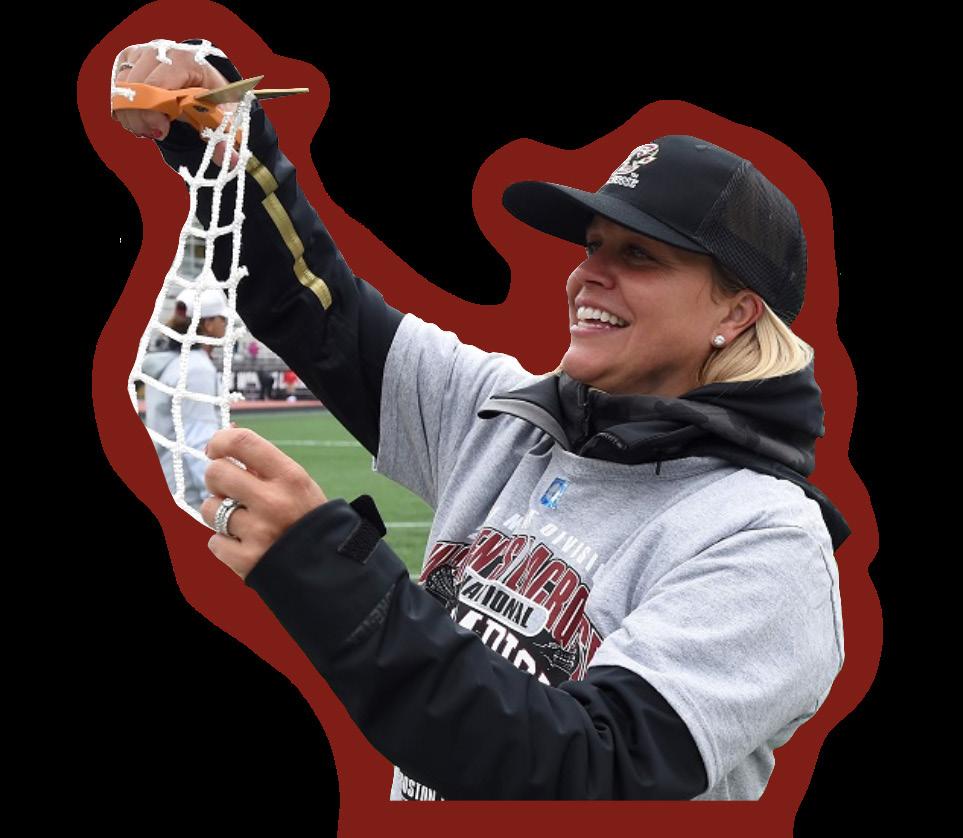 By Megan gentile Sports Editor
By Megan gentile Sports Editor
When Acacia Walker-Weinstein took the head coaching job for Boston College lacrosse in May 2012, the Eagles looked far different from the team that steps on the field at Alumni Stadium today. BC had finished with a losing conference record in each of the 12 years prior to Walker-Weinstein’s hire, stretching all the way back to when the Eagles still played in the Big East.
But after serving as an associate head coach for the Eagles for two years, Walker-Weinstein took the reins as head coach ahead of the 2013 season, and little by little, a program started to grow.
BC went 0–5 in conference play in 2009. Then, after finishing the next three seasons 1–4 in the ACC, the Eagles finished 3–2 in the conference in 2013. In 2015, they went 5–2 in the ACC. In 2018 and 2019, that number became 7–0, with Sam Apuzzo winning the Tewaaraton in 2018. In 2021? The Eagles won the NCAA Championship.
“Acacia has built this program from the ground up,” junior defenseman Hollie Schleicher said.
In her 10 years on the Heights,
By sustaining success at the highest level and creating a culture that the rest of the country looks to as the model, Walker-Weinstein earned The Heights’ 2021–22 Coach of the Year honor.
“Every day, I’m motivated by [my team],” Walker-Weinstein said. “We’re here to win National Championships and have sustainable success, and every day, the girls are the reason why I love to be at work every single day.”
Walker-Weinstein’s roots in lacrosse started when she was a child. While she is now decorated with accolades, there was a time when lacrosse was far from what she wanted to do every day.
“I was playing baseball, mostly, with the boys, and my friend was like ‘You have to come play a girls’ sport,’ and I didn’t really like the idea of lacrosse, but I tried it and I fell in love with it,” she said.
Walker-Weinstein went on to play for Maryland, where she was an IWLCA All-American and an All-ACC Selection. She captained the Terrapins her senior year and was nominated for the Tewaaraton Award—given to the nation’s top lacrosse player—in 2004 and 2005.
She continued to play lacrosse at an elite level after college, competing
“We really try to take good care of the culture because I think that really helps take care of the winning.”
Schleicher said that this uplifting atmosphere and Walker-Weinstein’s attitude on and off the field were integral in her decision to come to BC.
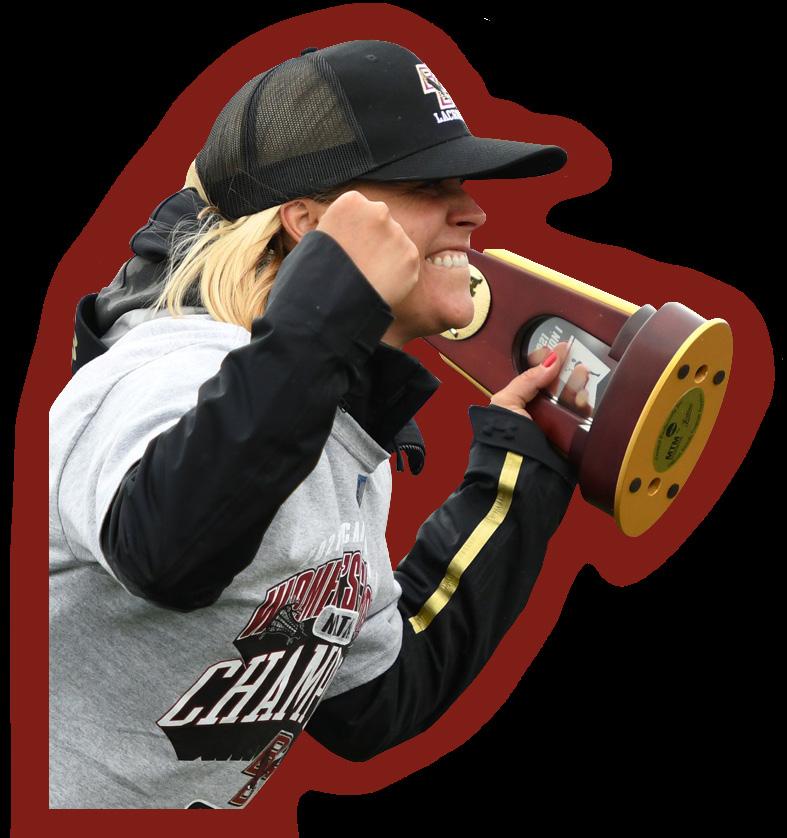
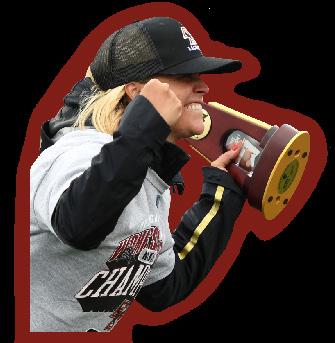
“Acacia and the coaching staff had so much to do with why I came here,” Schleicher said. “I had been to so many of the camps when I was younger, and she was just always so full of energy and—it sounds kind of cliche—but always smiling and always positive. … I knew that I wanted to surround myself with that kind of mentor.”
Schleicher credits Walk er-Weinstein with creating a balance between a high level of performance and a welcoming, enjoyable environment—one that involves fun but focuses on getting the job done.
“The atmosphere at practice is really fun,” Schleicher said. “It’s really high energy, there’s a lot of smiling, there’s a lot of laughing, but there’s also a lot of hard work going on. I think she does a really good job of just balancing that culture.”
Walker-Weinstein’s maternal nature makes her someone that her players can turn to when they need help, Schleicher said.
“I think she does a really good job with balancing pushing her players to their fullest potential but also … really being there for you and knowing what you need in certain moments,” Schleicher said.
The competitive yet supportive culture Walker-Weinstein has created is what allows the Eagles to be so successful on the field, according to Apuzzo, who played for BC from 2016–19.
“Acacia has done an incredible job in creating and cultivating a really open and kind of loving culture,” Apuzzo said. “She spends a lot of time—a lot of her personal time—and her energy in making sure that our culture is a really good foundation for our team. Some coaches only care about the X’s and O’s and the lacrosse part, but she knows that if our culture isn’t where it needs to be, we’re not going to win at all.”
winner, seven preseason All-American recipients, and seven 2022 All-ACC honorees, Walker-Weinstein said that she is motivated by her team.
“They’re a good group of girls,” she said. “They work so hard, they’re good
in a lot of huge decisions. Where some head coaches in the lacrosse world don’t necessarily take as much input, Acacia allows us to really have some freedom within our different units … and trusts a lot, which makes it really easy and fun
Championship in 2021, she led the Eagles to a 14–2 record in the 2022 regular season, showing the world that BC is out for the trophy again.
“The girls have a real love for each other and for competition and for Boston College,” Walker-Weinstein said.
For Walker-Weinstein, the passion and dedication of her players is what makes her excited to come to BC each day. Leading a roster comprised of the nation’s best, including the defending Tewaaraton
“It is a great thing that we’re all female, but I don’t really think about it like that—I just hire the best people,” Walker-Weinstein said. “It’s something to be proud of, but we just want the best coaches in the country and in the game.”
Working within a group of women is empowering for Apuzzo, and she said that she believes BC’s staff is a demonstration of where lacrosse—and women’s sports as a whole—is headed.
“I think especially now, the women’s game is growing in a sense that more players are going into coaching, so a lot of the girls in the NCAA are going right to coaching after graduation which I think is incredible to keep boosting up women in lacrosse, but also just women in sports,” Apuzzo said. “I think we’re taking the right steps.”
Apuzzo said she appreciates how well Walker-Weinstein includes her and Jennifer Kent into decisions and allows them to take liberty in their respective realms—Apuzzo with the offense and Kent with the defense.
“I think we have a really unique coaching staff,” she said. “Acacia does an incredible job of including Jen and I
In BC’s matchup against Virginia Tech in the quarterfinal of the ACC Tournament, Walker-Weinstein earned her 150th career win at BC.
Walker-Weinstein has grown immensely over the years, according to Apuzzo, who said she has enjoyed getting to observe her former coach and now colleague from both sides of the sideline.
“I think she’s definitely grown in different ways and learned a lot of things, especially going from playing in three national championships and losing to last year,” Apuzzo said. “There’s always this kind of part of her that is trying to kind of make herself better.”
For Walker-Weinstein herself, when it comes to her growth and the future, there’s only one thing on her mind.
“To win again.” n
Ever since she first laced up her skates, Abigail Levy never had a desire to score a goal. The moment she first glanced at a set of goalie pads, she discovered a calling.
“Funny story,” Levy said. “I was watching my older brother play hockey, and I asked my dad, ‘Hey, can I try this out?’ He was like ‘Of course, what do you want to do?’ and I was like ‘I want to be the one with the cool pads and the mit—the different looking one.’ I was always a goalie from the start.”
Levy’s curiosity sculpted her into the hockey player that she
and Levy could be eyeing a potential roster spot on the U.S. women’s national ice hockey team after being invited to the U.S. Women’s National Team High Performance Goaltending Camp in March 2021.
Following a dominant senior season with Boston College women’s hockey, Levy earned The Heights ’ 2021–22 Female Athlete of the Year honor.
“I think she has the ability to make a national team, and she’ll reach that level,” BC head coach Katie Crowley said. “I think she’s learning that now, which is good timing for her to kind of learn how to put herself in the best position that she can, and she’s using the resources
have at BC, from our strength coaches to our assistants.”
I n her youth, Levy chose to partake in boys’ hockey programs because of the lack of girls’ programs available where she grew up in Congers, N.Y.
“The best option for us was to stay with the boys’ hockey programs and then move on to women’s hockey when the checking became involved,” Levy said. “It wasn’t too bad a transition. It actually was pretty simple.”
For Levy, who began her hockey career with the Westchester Express Hockey Club, the sole adjustment she faced in her transition from boys’ to girls’ hockey was the speed
Levy, who is one of five siblings, practiced sports religiously in her youth, though her participation in sports was not solely tied to a hockey rink. Not a day passed for Levy without playing sports to some extent. Levy developed her passion for hockey by mimicking her brother’s love of the game.
“My parents and older brother did absolutely everything for me,” Levy said. “There wasn’t a day I came home from school and they weren’t driving me to hockey, driving me to basketball, soccer, volleyball—they did all that for me. And my older brother, I just wanted to follow in his footsteps.”
Levy was recruited to play high school hockey at Shattuck-St. Mary’s School, considered to be the pinnacle of high school hockey developmental programs in the nation that combines elite-level training with the demanding academics of a college-prep school. There, she became a three-time national champion.
“It’s so well known for so many great hockey players,” said Hannah Bilka, Levy’s teammate at BC, who also attended Shattuck-St. Mary’s. “It’s all hockey. School, of course, is good too, but you’re on the ice every day and you’re surrounded with people that have the same goals as you. Abby just kind of embodies that. She’s so determined to reach her goals, and Shattuck was a place for these types of players to just push each other.”
Levy was named Shattuck-St. Mary’s most athletic female in 2018 while also competing on the basketball, volleyball, softball, and lacrosse teams. As a former multisport athlete, Levy has a heightened understanding of team dynamics and game flow.
“The positives to that are endless,” Crowley said. “You can tell Abby is an athlete. We could tell when we recruited her. She is one of those people that wants to be in a situation where she’s under pressure, because she’s so calm and collected. She’s a phenomenal basketball player, too, and she loves competing.”
While Levy could have played basketball at the collegiate level, according to Crowley and Bilka, she landed on pursuing hockey and committed to Minnesota State.
Levy played for two years in Mankato, where she started 34 games as a freshman but appeared in only 22 games as a sophomore before making her transfer to the Heights.
“I think her confidence took a
little bit of a hit in Mankato, and I think when she got here you could literally see her confidence grow,” Crowley said. “We saw her in the portal and jumped on the opportunity. … She’s also just a really team-oriented player and one of the nicest people.”
A s a junior at BC in 2020–21, Levy appeared in 11 games for the Eagles, starting in 10 of them. Levy went 6–4–0 on the year with a 1.77 goals against average and a .944 save percentage while posting two shutouts, setting up for a breakout senior year.

As a senior, Levy led the country with 1,143 saves during the 2021–22 season—a program record.
She finished the year tied for 11th nationally with a .932 save percentage, which ranked first in the nation among goaltenders who made at least 30 saves per game. Levy went 18–14–1 on the year to finish fifth overall in the country in wins.
Levy, who was a semifinalist for the 2022 National Women’s Goalie of the Year Award, was named the Bertagna Award winner as the Beanpot’s top goaltender after stopping 99 shots over the tournament’s two games. Her crown jewel came against No. 3 Northeastern in the Beanpot semifinal, when Levy registered a masterful 49-save performance that sent the Eagles to the Beanpot final with a 3–1 upset over the Huskies.
“It was unbelievable,” Crowley said. “You know you can be successful when you have a goalie who stands on her head like she did that game. She got a little banged up sometimes, maybe even played a little through injury, but whatever it was, she fought through it because she knew it was important to her teammates.”
Levy earned two Hockey East Goaltender of the Week awards and was the runner-up for Hockey East Goaltender of the Month in January. Her 810 saves in Hockey East play are good for second-most all-time in the conference.
While her demeanor on the ice and communication with her teammates are her best qualities, according to Crowley, Levy is most focused on having fun at the highest level of hockey while improving her game.
“You can get better at everything, right?” Levy said. “Even the things you’re good at. So just all around, I think just being a better athlete will be a part of my development. Just always going into every game like it’s winnable.” n
As a senior, Abigail Levy was a semifinalist for the 2022 National Women’s Goalie of the Year Award and won the Bertagna Award as the Beanpot’s top goaltender. Levy led the country this year with 1,143 saves, and her presence in BC’s net earned her the Heights 2021–22 Female Athlete of the Year honor.
Though Boston College lacrosse won the NCAA title in 2021 and has experienced unrivaled success in recent years, the Eagles have never won the ACC Tournament.
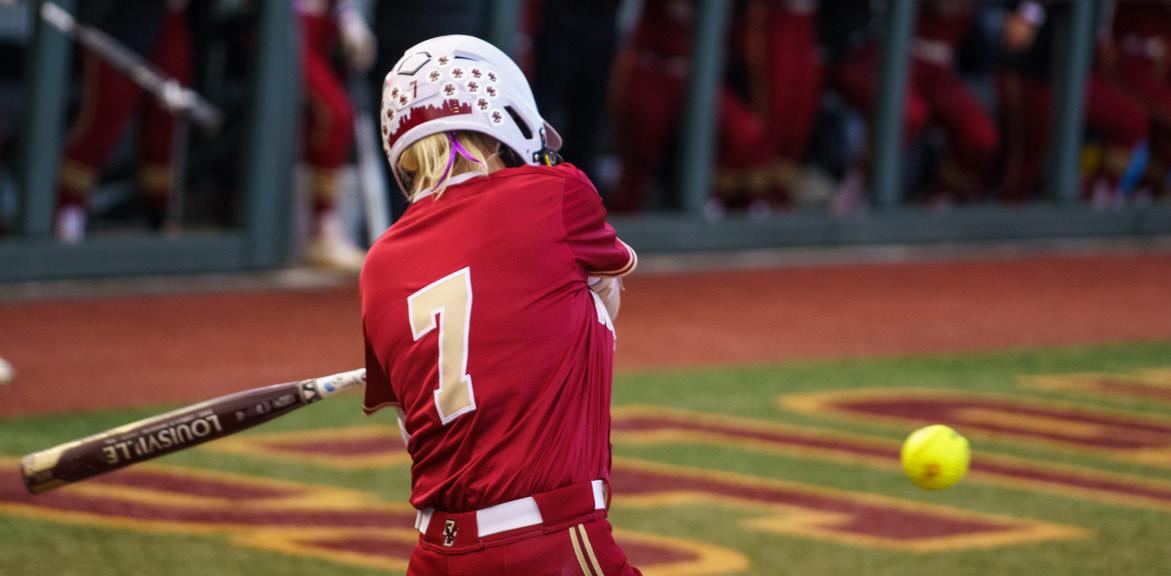
But after their semifinal game on Sunday, the Eagles are one step closer. No. 2 seed BC (16–2, 7–2 Atlantic Coast) defeated No. 6 seed Virginia 20–12 on Sunday afternoon to advance to the ACC Tournament Final.
“We have nothing to lose, and we’re excited,” midfielder Belle Smith said after the game on ACC Network. “We want to win an ACC Championship. We never have.”
The Eagles took a quick 5–1 lead in the first period. Smith scored or
assisted on four of those five goals. Virginia fought back, however, winning four straight draw controls and scoring three times in a row to cut the Eagles’ lead down to one.
Defending Tewaaraton Award recipient Charlotte North only scored two goals in the game, as Virginia Tech’s defenders constantly double teamed and face-guarded her. North’s first goal came on her first shot of the game with 2:15 left to play in the first quarter. After having seemingly nowhere to go with the ball, North used her footwork to angle herself to get a shot around Virginia goaltender Ashley Vernon to put BC up 6–4.
North is now only three goals behind the all-time NCAA record of 341 set by Stony Brook’s Courtney Murphy.
By halftime, BC led 11–6, with six
different players having found the net at least once.
Smith continued her strong play in the second half, and she finished the game with three goals and six assists. Cassidy Weeks was also crucial for the Eagles’ offense, scoring a career-high six goals and recording an assist. BC, which averages 6.89 assists per game, had a total of nine assists on Sunday.
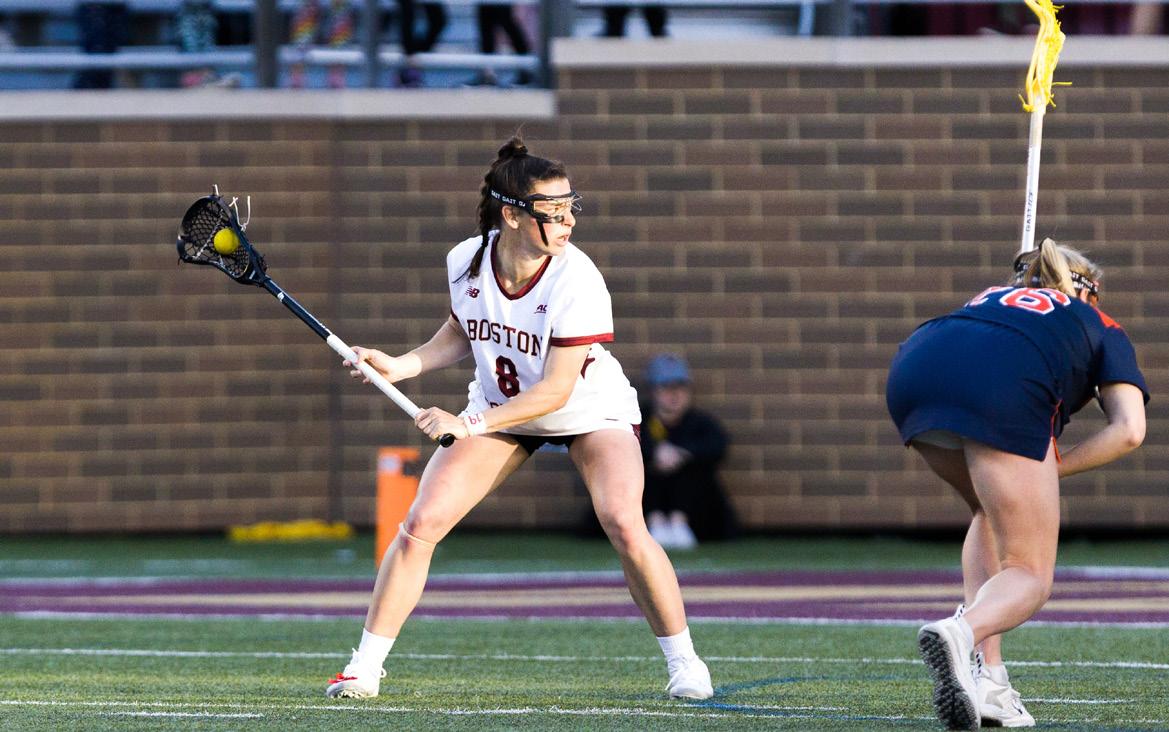
“I think our team is just all about ball movement and being a seven-threat offense,” Smith said. “That’s exactly what we were today—every single person was involved, and that’s just a really hard thing for a defense to stop.”
In addition to Smith and Weeks, Kayla Martello and Jenn Medjid also recorded hat tricks. The officials ejected Medjid from the game in the third period after she picked up her
second yellow card on a wild swing. But the Eagles kept their composure after a Virginia run made it a threegoal game late in the third, and they finished the game dominating the draw control 21–12 while outshoot-
ing Virginia 40–21.
BC outscored Virginia 4–1 in the final game. Seven different Eagles found the net, and goaltender Rachel Hall recorded one save in a defensive clinic by BC’s back line. n
beat the Eagles 11–5 on Saturday, the Fighting Irish dropped the first game of the series 7–4 on Friday.
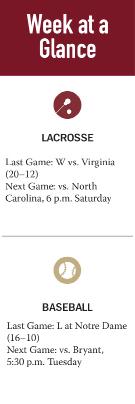 By Katherine Whelan Heights Staff
By Katherine Whelan Heights Staff
ACC powerhouse Virginia Tech’s tight defense and unstoppable offense were too much for Boston College softball to overcome on Saturday and Sunday, and the No. 2 Hokies swept the Eagles to close out BC’s season.
Virginia Tech (40–6, 22–2) shut BC out 9–0 in a six-inning, mercy-rule win on Saturday before defeating the Eagles again on Sunday 8–4.
On Sunday, Virginia Tech scored eight runs before BC finally answered in the fifth inning. Kennedy Labshere hit a solo shot to left in the fifth to put the Eagles (20–27, 6–18 Atlantic Coast) on the board. Then, in the bottom of
Boston College Notre Dame 7 4
The seventh inning play-by-play of Boston College baseball’s series finale with Notre Dame had a unique twist. In for starters Jack Zyska, Nick Juaire, Roman Kimball and David LaManna came Ryan Cole, TJ Williams, Jack Penney, and Jack Brannigan. One after another, the Fighting Irish revised their lineup to rest their stars after a run of demolition in the bottom of the sixth inning. Notre Dame led by eight runs when it pulled its starters and closed out its ACC series win over BC on the Irish’s home turf.
With wins on Saturday and Sunday, No. 18 Notre Dame captured a much-needed ACC series win over the Eagles leading up to playoff ball. An 11-run bottom of the sixth inning was too much for BC to overcome (17–28, 4–20 Atlantic Coast) in a 16–10 loss to the Irish on Sunday. While Notre Dame
Despite BC’s loss on Sunday, freshman right-hander Sean Hard hung around for three solid innings of work on the mound, giving up two runs and recording four strikeouts.
Before the Irish (28–10, 13–8) registered 11 runs on homers from Jared Miller, Cole, and Zyska, they surrendered a 5–2 lead in the top of the inning. Jackson Dennies came in to relieve Aidan Tyrell, who had replaced starter Jack Findlay in the fourth inning. Boasting a 0.42 era entering the game, Findlay had only given up one run in 21.1 innings pitched this season.
Dennies lasted two batters before getting pulled. Notre Dame cycled through two extra relief pitchers—Will Mercer and Roman Kimball—attempting to dampen BC’s rally, but the Eagles clawed at their deficit to produce six runs in the inning and take an 8–5 lead.
Patrick Roche started things off by lofting a double to the left-center gap, and Daniel Baruch followed with a single to left field that Cole played perfectly on a hop. Mercer came in and let up a
Sam McNulty single that scored Roche. Barry Walsh and Cameron Leary struck out in back-to-back at-bats, but that didn’t halt the Eagles’ rally.
Luke Gold was next to bat. He roped a double to right center on the first pitch, sending McNulty and Baruch home. Joe Vetrano reached on a walk, and with the final reliever coming in, Parker Landwehr drilled a moonshot to left field that sailed miles above the fence, scoring Gold and Vetrano to give the Eagles a three-run lead.
That didn’t stop Notre Dame from reversing the momentum in a matter of a half-inning break. Without looking back, the Irish got hot and started to dance with the same energetic vigor that BC brought in the top half of the sixth inning.
Notre Dame posted 11 runs in the bottom of the sixth inning, topping its eight-run bottom of the first inning that came one day earlier.
Two singles and two errors quickly tied the game for Notre Dame, and the Irish went back in front on a grand slam by Miller. BC committed four errors in the series-deciding contest and fell 16–10.
On Saturday, the Eagles dropped their first game of the series 11–5. Despite allowing eight runs on eight hits the first time through the order, Henry Leake pitched five innings.
The Irish brought in four runs with just one out before two bunt singles loaded the bases, and shortstop Zach Prajzner broke the game open with a grand slam. Leake took the loss with 10 runs against on 11 hits and one walk with four strikeouts.
Right-handed starter Austin Temple allowed four runs on three hits and three walks with four strikeouts in a four-inning start for Notre Dame.
Friday featured a BC victory to open the series, with right-handed starter Joe Mancini taking down the Irish lineup. BC got seven innings of one-run ball from the senior and backed him up with a four-run fourth inning and a three-run fifth inning.
Mancini and Notre Dame lefty John Michael Bertrand hoisted matching zeroes through the first three innings. Junior center fielder Walsh broke the tie with a leadoff home run in the first, and BC trotted to its sole win of the series. n
the sixth inning, Kamryn Warman hit a three-run homer to left, bringing in Hannah Slike and Abigail Knight.
BC’s late effort wasn’t enough to overcome Virginia Tech’s lead, though, and the Eagles ended their season with their seventh ACC series loss of the year.
On Saturday, Peyton Schnackenberg started on the mound for the Eagles, walking four batters and allowing 10 hits. Virginia Tech’s Emma Lemley, meanwhile, let up only three hits in the Hokies’ 9–0 win.
“I think we opened the door a ton for them today to be able to look as aggressive as they did,” BC head coach Amy Kvilhaug said after the game. “I think we could have done a better job to control the game from the defensive standpoint and pitching standpoint too.”
The Hokies took the lead early on,
scoring four runs across the first three innings. BC failed to generate any substantial offense, and even when runners got on base, they failed to capitalize.
In the bottom of the third, the umpire called Ellie Mataya out at third base, and the Eagles challenged the call, but it stood to put a halt to BC’s chance at a comeback in the inning.
Mataya’s efforts stood out both on offense and on defense. In the top of the fifth, she sped from center field all the way to right field to make a diving catch, followed by a rocket throw to first to secure a double play.
“She saw that ball was questionable—it may have fallen in, she didn’t know if [Warman] would have a beat on it, so she said ‘screw it, I’m going to come to right field and take the ball,”’ Kvilhaug said. “Ellie stepped up today. … It was a leadership move. I thought it was awesome.”
The sixth inning showed not only Mataya’s persistence, but BC’s determination to not walk off the field without putting up a fight.
Mataya began the inning with a double down the left-field line. Then, Lemley walked Slike to put a second runner on base. Kristin Giery and Kamryn Warman both ran up the
pitch count in an attempt to keep the Eagles in the game, but both struck out looking.
“We didn’t make defensive plays we needed to make, [and] we’re getting runners on, they’re just not scoring them,” Kvilhaug said. “At the end of the day, it’s about how we perform, and the results will take care of themselves.” n